
Standing member of the Secretariat Tran Cam Tu signed and issued Regulation No. 377-QD/TW dated October 8, 2025 of the Politburo on decentralization of cadre management and planning, appointment, nomination, temporary suspension, dismissal, resignation, and dismissal of cadres. (Photo: DUY LINH)
Full text of Regulation No. 377-QD/TW is as follows:
- Pursuant to the Party Charter and Regulations on the implementation of the Party Charter;
- Pursuant to the Working Regulations of the 13th Central Executive Committee, Politburo and Secretariat;
- Pursuant to Conclusion No. 121-KL/TW dated January 24, 2025 and Resolution No. 60-NQ/TW dated April 12, 2025 of the 13th Party Central Committee,
The Politburo stipulates the decentralization of cadre management and planning, appointment, nomination, suspension from work, removal from office, resignation, and dismissal of cadres as follows:
Chapter I
GENERAL PROVISIONS
Article 1. Scope of regulation and applicable subjects
1. This regulation stipulates the purpose, requirements, principles, contents, responsibilities, and authority in cadre management and the principles, responsibilities, authority, standards, conditions, procedures, and processes for planning, appointing, reappointing, recommending candidates for election, re-election, designating, transferring, seconding, temporarily suspending work, removing from office, resigning, and dismissing cadres.
2. This regulation applies to Party committees, Party organizations, agencies, units, and cadres, civil servants, and public employees in the political system.
Article 2. Purpose and requirements
1. Concretize the Party's policies, resolutions, and conclusions, ensuring strictness, democracy, objectivity, publicity, and transparency in personnel work and personnel management.
2. Ensure synchronization, unity, comprehensiveness, and connectivity in the Party's personnel work; regularly, objectively, impartially, and accurately evaluate cadres; properly plan, select, and arrange cadres; effectively implement the "in, out, up, down" mechanism in personnel work; meet the requirements of tasks and practical situations.
3. Strengthen the Party's leadership over personnel work; ensure continuous and steady transition between generations, proactively build a team of leaders and managers at all levels, especially at the strategic level, with leaders who have sufficient qualities, capacity and prestige, equal to the tasks in the new period, and are closely attached to the people.
Article 3. Principles
1. The Party unifies leadership of personnel work and management of staff:
- Propose guidelines, policies, standards, regulations, and rules on personnel work and lead, direct, and organize implementation through Party committees, Party organizations, cadres, and Party members in agencies and organizations of the political system, State economic organizations, and public service units.
- Take care of building the team of cadres, civil servants and public employees of the political system; directly manage the team of cadres, first of all key leaders and managers of sectors and levels.
- Assign and decentralize the work of managing cadres, planning, appointing, and introducing candidates to Party committees and organizations at all levels; at the same time, regularly inspect and supervise the implementation of the branches and levels.
2. Strictly implement the principles of democratic centralism and collective decision-making, and at the same time, fully promote the responsibilities of Party committees, Party organizations, collective leaders and relevant individuals, first of all, the leaders in personnel work and personnel management:
- Issues regarding guidelines, policies, evaluation, planning, training, fostering, selection, arrangement, use, appointment, reappointment, nomination for candidacy, re-election, designation, transfer, rotation, secondment; conferment, promotion, demotion, and stripping of military ranks; temporary suspension, suspension from office; temporary suspension from work, dismissal from office, resignation, dismissal, removal from planning; rewards, discipline, and implementation of regimes and policies for cadres must be discussed democratically by the Party Committee, Party organization, and competent leadership collective, and decided by majority. In cases where the opinions of the head and the opinions of the Party Committee, Party organization, and leadership of the agency or unit are different, they must be reported to the competent authority for consideration and decision.
- The head of the Party Committee, Party organization, agency, or unit is responsible for proposing and organizing the implementation of collective decisions on personnel work and cadres within the assigned scope of responsibility.
- Cadres and party members must comply with and implement resolutions and decisions of party committees and party organizations; lower-level party committees must comply with decisions of higher-level party committees on cadre work and cadres.
Article 4. Interpretation of terms
1. Personnel work is the guidelines, policies, regulations on decentralization of management, assessment, planning, training, fostering, selection, arrangement, assignment, appointment, reappointment, nomination for candidacy, re-election, designation, transfer, rotation, secondment; conferment, promotion, demotion, stripping of military rank; temporary suspension, suspension from position; temporary suspension from work, dismissal from position, resignation, dismissal; rewards, discipline, implementation of regimes and policies; inspection, control, supervision,... on cadres in order to lead, direct, build and manage the cadre team.
2. Decentralization of cadre management is a decision by a competent authority to decentralize or authorize Party committees, Party organizations, agencies and units to participate in or directly manage certain stages of cadre work for cadre positions under the management of superiors and to decide on stages of cadre work for cadre positions under the management of Party committees, Party organizations, agencies and units according to regulations.
3. Appointing a cadre is a decision by a competent authority to appoint a cadre to a position higher, equivalent or lower than the position he/she is holding (when the cadre has committed a violation, has shortcomings or does not meet the requirements, tasks or due to the arrangement or streamlining of the organizational apparatus) .
4. Staff planning is the decision of the competent authority to plan staff for a position higher than the current position.
5. Dismissal from office is a decision by a competent authority to allow an officer to terminate his/her current position to be assigned to another job or to retire (not including cases of appointment, transfer, rotation or assignment to another job according to the requirements of the officer's work) .
6. Resignation is when an official voluntarily requests to leave the position he or she is holding before the end of the term of office or appointment and is approved by the competent authority.
7. Dismissal is a decision by a competent authority to terminate the position held by an official but not to the extent of removal from office.
8. A violation causing serious consequences is a violation of a serious nature, level, and harmful effect, causing bad public opinion among cadres, party members, and the people, reducing the prestige of the individual and the party organization, agency, or unit where the party member lives and works.
9. Violations causing very serious consequences are violations of a very large nature, level, and harm, causing bad public opinion, great indignation among cadres, party members and the people, damaging the reputation of the individual and the party organization, agency, or unit where the party member lives and works.
10. Temporary suspension of an official is a decision by a competent authority to stop the official from performing his/her assigned duties and tasks for a certain period of time. Temporary suspension is not a form of discipline.
11. Removing a cadre from the planning is a decision by the competent authority to remove the cadre from the approved planning of positions.
Chapter II
PERSONNEL MANAGEMENT DECENTRALIZATION
Article 5. Content
1. Decentralization of staff management.
2. Staff evaluation.
3. Planning, training and developing staff.
4. Selection, arrangement, assignment, appointment, reappointment, nomination for candidacy, re-election, designation, transfer, rotation, secondment; conferment, promotion, demotion, and stripping of military ranks; temporary suspension, suspension from office; temporary suspension from work, dismissal from office, resignation, dismissal, and removal from planning for cadres.
5. Reward and discipline staff.
6. Implement personnel policies and regimes.
7. Inspect, control and supervise the implementation of decentralization and authorization in personnel work.
8. Resolving complaints and denunciations in personnel and personnel work.
Article 6. Management and decision-making responsibilities for staff
1. The Party Central Committee orients and decides on important policies and contents on personnel work and cadres according to the Working Regulations of the Party Central Committee.
2. The Politburo and the Secretariat manage and directly decide on a number of contents in personnel work; assign and delegate to Party committees and organizations at all levels to decide on a number of contents in personnel work for leadership positions under the Central management and other personnel positions; authorize the President, the Prime Minister, the National Assembly Chairman, and the Standing Secretariat to decide on a number of stages and contents in personnel work.
3. Party committees, party organizations, and heads of agencies and units directly manage cadres working and participating in party activities in localities, agencies and units, including cadres under the management of superiors, and are responsible to competent authorities for the scope and content of decentralized and authorized cadre management. Party committees, party organizations, and heads are responsible for periodically reporting to superiors on the situation of cadres and cadre work under the management authority of superiors according to current regulations on decentralized management.
4. In case a person simultaneously holds multiple positions under the management authority of different levels, the highest management level of the position shall consider and decide.
5. Party committees, party organizations, heads of agencies and units lead and direct the development of plans and organize inspections, supervisions, and take votes of confidence according to regulations; consider, decide or propose rewards, discipline and implement regimes and policies according to Party regulations, State laws, the Charter of the Vietnam Fatherland Front, socio-political organizations; temporarily suspend work, remove from office, resign, dismiss, or remove from planning cadres who are decentralized to manage or within the assigned scope of responsibility.
Article 7. Responsibilities and powers of the Politburo
1. Decide on policies and strategies on personnel work and cadres according to the Working Regulations of the Party Central Committee, Politburo, and Secretariat.
2. Submit to the Party Central Committee important contents on cadre strategy and cadre work; prepare and introduce personnel to:
- The Party Central Committee considers electing the General Secretary, the Politburo, the Secretariat, the Central Inspection Commission, the Chairman of the Central Inspection Commission and recommends personnel for the National Assembly to elect to hold the positions of President, Prime Minister and Chairman of the National Assembly.
- Seek the opinion of the Party Central Committee before introducing personnel for the National Assembly to elect and approve for the following positions: Vice President, Vice Chairman of the National Assembly, Deputy Prime Minister, Chief Justice of the Supreme People's Court, Chief Prosecutor of the Supreme People's Procuracy, Member of the National Assembly Standing Committee, Chairman of the Ethnic Council, Secretary General of the National Assembly - Head of the National Assembly Office, Chairman of the National Assembly Committees, State Auditor General, and members of the Government.
- Seek the opinion of the Party Central Committee before the Politburo considers and decides on the planning of the Party Central Committee, the Politburo, and the Secretariat.
- Disciplinary action against cadres and other issues related to cadre work are under the authority of the Party Central Committee.
3. Decision on work assignment for Politburo members, Secretariat members, and Central Executive Committee members (both official and alternate) .
4. Appoint Deputy Secretary, Member of the Central Military Commission and Secretary, Deputy Secretary, Member of the Central Public Security Party Committee; appoint (or pilot appointment) according to the regulations of the Party Central Committee for members of the executive committee, standing committee, secretary, deputy secretary, inspection committee, chairman, deputy chairman of the inspection committee of provincial Party Committees, city Party Committees, and Party Committees directly under the Central Committee. When necessary, appoint a secretary, delegate the power of secretary, or assign responsibility for a Party Committee directly under the Central Committee.
5. Decide on assessment, planning, training, fostering, arrangement, assignment, appointment, nomination for candidacy, re-election, designation, transfer, rotation, secondment of cadres; confer, promote, demote, strip of general ranks; temporarily suspend, suspend from office; temporarily suspend from work, remove from office, resign, dismiss, remove from planning; commend, discipline and implement regimes and policies for cadre positions stated in Section II, Appendix 1 of this Regulation. Lead the Party Committee of the National Assembly in introducing personnel, electing, approving, dismissing or taking a vote of confidence for positions elected or approved by the National Assembly.
6. Decide on the assignment and decentralization of cadre management to Party committees and organizations directly under the Central Committee.
7. Decide to inspect and supervise personnel work in sectors, levels and organizations in the political system.
8. Authorize the President, Prime Minister, Chairman of the National Assembly, and Standing Secretariat within their respective scope and areas to consider:
- Decide on the assignment, appointment, and nomination of candidates for cadres under the management of the Politburo to hold titles and positions with concurrent structures of Party Committees directly under the Party Committees of Central Party agencies, the Government Party Committee, the National Assembly Party Committee, the Fatherland Front Party Committee, Central mass organizations; the Vietnam Fatherland Front, socio-political organizations, associations, friendship parliamentary organizations of Vietnam with other countries, and steering committees according to regulations.
- Re-appoint and implement retirement regime for cadres under the management of the Politburo according to regulations (except for Central Party Committee members) .
Article 8. Responsibilities and powers of the Secretariat
1. Decide on assessment, planning, training, fostering, arrangement, assignment, appointment, nomination for candidacy, re-election, designation, transfer, rotation, secondment of cadres; confer, promote, demote, strip of general ranks; temporarily suspend, suspend from position; temporarily suspend work, remove from position, resign, dismiss, remove from planning; reward, discipline and implement regimes and policies for cadre positions stated in Section III, Appendix 1 of this Regulation.
2. Decide to inspect and supervise personnel work as authorized by the Politburo.
3. Periodically report to the Politburo on personnel work and personnel managed by the Secretariat.
4. Authorize the following comrades: President, Prime Minister, Chairman of the National Assembly, Standing Member of the Secretariat within the scope and field of responsibility to consider:
- Decide on the assignment, appointment, and nomination of candidates for cadres under the management of the Secretariat to hold titles and positions with concurrent structures of Party Committees directly under the Party Committees of Central Party agencies, the Government Party Committee, the National Assembly Party Committee, the Fatherland Front Party Committee, Central mass organizations; the Vietnam Fatherland Front, socio-political organizations, associations, friendship parliamentary organizations of Vietnam with other countries, and steering committees according to regulations.
- Reappoint and implement retirement regime; extend the term of Vietnamese ambassadors abroad for no more than 12 months for cadres under the management of the Secretariat (not including extending the retirement age) according to regulations.
5. Responsibilities of the Standing Member of the Secretariat:
- Preside with the Head of the Central Organizing Committee and the Chairman of the Central Inspection Committee to review the election results and decide to approve the executive committee, standing committee, secretary, deputy secretary; inspection committee, chairman, deputy chairman of the inspection committee and additional elected positions of provincial party committees, city party committees and party committees directly under the Central Committee.
- Appoint additional members of the Party Committee, members of the Standing Committee; members, vice-chairmen, and chairmen of the Inspection Committee of the Provincial Party Committee, City Party Committee, Party Committees of Central Party agencies, the Government Party Committee, the National Assembly Party Committee, the Fatherland Front Party Committee, and central mass organizations (for cadres not under the management of the Politburo and Secretariat) according to the provisions of the Party Charter.
- Give opinions on the personnel of the secretaries of the following comrades: Politburo members, Secretariat members; Vice President, Deputy Prime Minister, Vice Chairman of the National Assembly, Chief Justice of the Supreme People's Court, Chief of the Supreme People's Procuracy, Head of the Central Party Committee, Chairman of the Central Inspection Committee, Director of the Ho Chi Minh National Academy of Politics, Chief of the Central Party Office.
Article 9. Responsibilities and powers of provincial and municipal Party Committees
1. Provincial and municipal party executive committee
- Responsible to the Politburo and Secretariat for leading, directing, and organizing the implementation of resolutions, policies, regulations, rules, and decisions of the Central Committee on personnel work and local personnel.
- Submit to the Politburo and the Secretariat for consideration and decision on personnel for the Secretary and Deputy Secretary of the Provincial Party Committee, City Party Committee, Chairman of the People's Council, Chairman of the People's Committee, Head of the National Assembly delegation of the province or city; personnel for appointment of additional members of the Executive Committee, and introduction of election of members of the Standing Committee of the Provincial Party Committee and City Party Committee.
- Based on the regulations of the Central Committee, decide on the number of members of the Standing Committee and members of the Inspection Committee of the Provincial Party Committee and the City Party Committee; adjust the structure of the Party Committee and the Standing Committee of the Party Committee outside the structure of the Party Committee and the Standing Committee of the Party Committee determined according to the regulations of the Politburo.
- Elect the standing committee, secretary, deputy secretary of the provincial and municipal party committees; elect the inspection committee (committee members) Inspection Committee) , Chairman of the Inspection Committee of the Provincial Party Committee, City Party Committee.
- Introduce candidates or proposed candidates for appointment to the provincial or municipal party executive committee.
- Introduce personnel for the People's Council to elect the Chairman of the People's Council and Chairman of the People's Committee of the province or city.
- Provide opinions on personnel recommendations for the People's Council to elect to hold the positions of Vice Chairman of the People's Council and Vice Chairman of the People's Committee of the province or city before the Standing Committee of the Provincial Party Committee or City Party Committee decides to recommend them for the People's Council to elect.
2. Standing Committee of Provincial Party Committee, City Party Committee
- Decision on work assignment for executive committee members, standing committee members of provincial and municipal party committees.
- Selection, assessment, planning, training, fostering, arrangement, assignment, appointment, reappointment, nomination for candidacy, re-election, designation, transfer, rotation, secondment; temporary suspension, suspension from position; temporary suspension from work, dismissal from position, resignation, dismissal, removal from planning; rewards, discipline; implementation of regimes and policies for the following positions:
+ Executive Committee member, standing committee member of provincial and municipal Party Committee; Vice Chairman of People's Council, Vice Chairman of People's Committee, Deputy Head of full-time National Assembly delegation of province and city.
+ Heads and deputy heads of departments, advisory and support agencies, public service units, the Vietnam Fatherland Front and socio-political organizations, departments, branches, agencies, units at the provincial level and equivalent; heads of mass organizations assigned tasks by the Party and State in provinces and cities.
+ Secretary, deputy secretary, member of the standing committee of the affiliated party committee.
+ Secretary, deputy secretary of commune-level Party Committee; Chairman of People's Council, Chairman of People's Committee at commune level.
- Prepare personnel for the provincial and municipal Party Executive Committees to consider and propose to the Politburo and Secretariat to introduce candidates for the following positions: Secretary and Deputy Secretary of the Provincial and Municipal Party Committees; Chairman of the People's Council, Chairman of the People's Committee, Head of the National Assembly delegation of the province and municipality; appoint additional members of the Executive Committee, introduce members of the Standing Committee of the Provincial and Municipal Party Committees.
- Propose the Politburo and the Secretariat to evaluate, plan, arrange, assign, appoint, re-appoint, recommend candidates, re-elect, designate, transfer, rotate, second; temporarily suspend work, remove from office; temporarily suspend, suspend from office, resign, dismiss, remove from planning; reward, discipline; implement regimes and policies for cadre positions under the decision-making authority of the Politburo and the Secretariat working in localities. Give opinions on personnel expected to be transferred and rotated to localities, agencies, units and the consideration of conferring and promoting to the rank of general (if any) when requested by the Central Committee.
- Pursuant to the regulations of the Politburo, decide to decentralize and authorize cadre management to Party committees, Party organizations and agencies and units under the provinces and cities.
- Decide to inspect and supervise the work of cadres and officials of Party committees and subordinate Party organizations within the scope of responsibility.
- Approve or authorize the standing committee of the Party Committee to approve the executive committee, standing committee, secretary, deputy secretary of the subordinate Party Committee; inspection committee (member of the inspection committee) , chairman, deputy chairman of the inspection committee of the subordinate Party Committee.
- Appoint or authorize the standing committee of the Party Committee to appoint additional members of the Executive Committee, recommend and elect members of the Standing Committee of the Party Committee directly under the Party Committee; appoint or pilot the appointment of members of the Executive Committee, Standing Committee, Secretary, Deputy Secretary, Inspection Committee, Chairman, and Deputy Chairman of the Inspection Committee of the Party Committee directly under the Party Committee according to regulations. When necessary, appoint a Secretary or delegate the power of Secretary, and assign responsibility for the Party Committee directly under the Party Committee.
- Provide opinions to Party committees, agencies and units at the Central level (if any) on assessment, planning, arrangement, appointment, dismissal, suspension from position, rewards and discipline. staff, specifically:
+ Party committees, agencies and units at the Central level for personnel at the head and deputy head levels under the appointment authority of vertical branches for party work and activities at the local level.
+ The Standing Committee of the Central Military Commission on personnel of Commander, Deputy Commander, Political Commissar, Deputy Political Commissar of the Hanoi Capital Command; with the Party Committees of military regions on personnel of Commander, Deputy Commander, Political Commissar, Deputy Political Commissar of the Ho Chi Minh City Command, personnel of commanders, deputy commanders, political commissars, deputy political commissars of military commands of provinces and cities.
+ Standing Committee of the Central Public Security Party Committee on personnel of directors and deputy directors of provincial and municipal public security.
Article 10. Responsibilities and powers of the Central Military Commission and the Central Public Security Party Committee
1. Be responsible to the Politburo for leading, directing and inspecting the implementation of resolutions, policies, and decisions of the Party on personnel work and cadres within the scope of responsibility.
2. Decision on assignment of tasks to members of the Standing Committee, members of the Central Military Commission, and members of the Central Public Security Party Committee.
3. Evaluate, plan, train, foster, arrange, assign, appoint, re-appoint, recommend candidates for election, re-elect, designate, transfer, rotate, second cadres; confer, promote, demote, and strip officers of their military ranks; temporarily suspend, suspend positions; temporarily suspend work, remove from positions, resign, dismiss, remove from planning; reward, discipline; implement regimes and policies for cadre positions under management authority according to decentralization.
4. Submit to the Politburo and the Secretariat for evaluation, planning, arrangement, assignment, appointment, nomination, nomination, designation, transfer, rotation, and secondment of cadres; confer, promote, demote, and strip general ranks; temporarily suspend, suspend positions; temporarily suspend work, remove from positions, resign, dismiss, and remove from planning; reward and discipline; implement regimes and policies for cadre positions under the management of the Politburo and the Secretariat (excluding a number of positions authorized to the Prime Minister as stated in Clause 8, Article 7 and Clause 4, Article 8 of this Regulation) .
5. Pursuant to the regulations of the Politburo, the decision authorizes the Standing Committee of the Party Committee directly under it and decentralizes personnel management to Party Committees at all levels in the armed forces.
6. Approve the executive committee, standing committee, members, chairman, and vice chairman of the inspection committee of the subordinate party committee. Appoint additional members of the executive committee, recommend for election of members of the standing committee of the subordinate party committee; when necessary, appoint the secretary or delegate the powers of secretary, and assign responsibility for the subordinate party committee.
7. Preside, coordinate, and exchange opinions with the Standing Committees of the Provincial and Municipal Party Committees on personnel expected to be mobilized, transferred, and appointed to positions with a structure to participate in the Executive Committee and Standing Committee of the Provincial and Municipal Party Committees, specifically:
- The Central Military Commission Standing Committee presides over and exchanges opinions with the Hanoi Party Committee Standing Committee on personnel: Commander, Deputy Commander, Political Commissar, Deputy Political Commissar of the Hanoi Capital Command. The Military Region Party Committee Standing Committee presides over, coordinates, and exchanges opinions with the Provincial and City Party Committee Standing Committees on personnel: Commander, Deputy Commander, Political Commissar, Deputy Political Commissar of the Provincial and City Military Command; Commander, Deputy Commander, Political Commissar, Deputy Political Commissar of the Ho Chi Minh City Command.
- The Standing Committee of the Central Public Security Party Committee chaired and exchanged opinions on personnel for directors and deputy directors of provincial and municipal public security.
The Standing Committee of the Central Military Commission and the Standing Committee of the Central Public Security Party Committee analyze and discuss different opinions, decide and take responsibility for their decisions.
8. Decide to inspect and supervise the personnel work of subordinate Party committees.
9. Board The Central Military Commission Standing Committee considers the mobilization, arrangement, and appointment to equivalent positions for the positions of deputy commanders and deputy political commissars of the following: Military regions, military services, border guards, and army corps. In case of expected mobilization, arrangement, or appointment to a position lower or higher than the current position, it must be reported to the Politburo and the Secretariat for consideration and decision according to authority.
Article 11. Responsibilities and powers of Party Committees of Central Party agencies
1. Be responsible to the Politburo for leading, directing, inspecting, and supervising the implementation of resolutions, guidelines, policies, regulations, rules, and decisions of the Party on personnel work and cadres.
2. Standing Committee of Party Committees of Central Party agencies:
- Selection, assessment, planning, training, fostering, arrangement, assignment, appointment, reappointment, nomination for candidacy, re-election, designation, transfer, rotation, secondment; temporary suspension, suspension from position; temporary suspension from work, dismissal from position, resignation, dismissal, removal from planning; commendation, discipline and implementation of regimes and policies for cadre positions under the management authority according to decentralization and specialized cadres, civil servants of advisory and support agencies of the Party Committee according to regulations.
- Pursuant to the regulations of the Politburo, the decision to decentralize some cadre management contents to subordinate Party committees.
- Provide opinions on cadre positions under the Central management of Party work and activities at the Party Committee when requested and other cadre positions according to regulations.
- Approve or authorize the Standing Committee of the Party Committee to approve; appoint or authorize the Standing Committee of the Party Committee to appoint additional members of the Executive Committee, introduce and elect members of the Standing Committee, members, chairmen and vice chairmen of the inspection committees of subordinate Party Committees according to regulations; when necessary, appoint the Secretary or delegate the powers of the Secretary, and assign responsibility for subordinate Party Committees.
- Decide on the assignment of tasks to members of the Standing Committee and members of the Party Executive Committee; inspect and supervise the work of cadres and officials of subordinate Party Committees within the scope of responsibility.
Article 12. Responsibilities and powers of the Government Party Committee
1. Be responsible to the Politburo for leading, directing and inspecting the implementation of resolutions, guidelines, policies, regulations, rules and decisions of the Party on personnel work and cadres within the scope of responsibility.
2. Standing Committee of the Government Party Committee:
- Selection, assessment, planning, training, fostering, arrangement, assignment, appointment, reappointment, nomination for candidacy, re-election, designation, transfer, rotation, secondment; temporary suspension, suspension from position; temporary suspension from work, dismissal from position, resignation, dismissal, removal from planning; commendation, discipline and implementation of regimes and policies for cadre positions under the authority of decentralized management and specialized cadres of advisory and support agencies of the Party Committee according to regulations. On that basis, the Prime Minister makes state decisions according to regulations.
- Propose the Politburo and the Secretariat to evaluate, plan, arrange, assign, appoint, recommend candidates for election, re-election, designate, transfer, rotate, second cadres; confer, promote, demote, and strip general ranks; remove from office; temporarily suspend, suspend from office, temporarily suspend from work, resign, dismiss, remove from planning; reward, discipline; implement regimes and policies for cadre positions under the management of the Politburo and the Secretariat working at the Government (including the Ministry of National Defense and the Ministry of Public Security) and the Government Party Committee; personnel for chairmen of provincial and municipal people's committees.
- Pursuant to the regulations of the Politburo, the decision to decentralize some cadre management contents to subordinate Party committees.
- Decide on the assignment of tasks to members of the Standing Committee and members of the Party Executive Committee; inspect and supervise the work of cadres and officials of subordinate Party Committees within the scope of responsibility.
- Approve or authorize the Standing Committee of the Party Committee to approve; appoint or authorize the Standing Committee of the Party Committee to appoint additional members of the Executive Committee, introduce and elect members of the Standing Committee, members, chairmen and vice chairmen of the inspection committees of subordinate Party Committees according to regulations; when necessary, appoint the Secretary or delegate the powers of the Secretary, and assign responsibility for subordinate Party Committees.
- Provide opinions on cadre positions under the Central management of Party work and activities at the Party Committee when requested and other cadre positions according to regulations.
- Authorized by the Politburo and the Secretariat within the scope and field of responsibility to consider:
+ Decide on the organization, management, use; training, fostering, evaluation, commendation, administrative discipline, reappointment and implementation of retirement regime, recommendation for dismissal, early termination of term for cadres (excluding Party Central Committee members) mentioned in Section II, Section III, Appendix 1 of this Regulation; decide to introduce personnel for Vietnamese Ambassadors in foreign countries for consideration and appointment by competent state agencies (excluding cadres under the management of the Politburo and Secretariat).
+ Appoint and introduce candidates for officials under the management of the Politburo and Secretariat to hold titles and positions with a concurrent structure of the Vietnam-foreign parliamentary friendship organization, affiliated party committees, associations, steering committees, and other organizations with a concurrent title structure according to regulations.
Article 13. Responsibilities and powers of the National Assembly Party Committee
1. Be responsible to the Politburo for leading, directing and inspecting the implementation of resolutions, guidelines, policies, regulations, rules and decisions of the Party on personnel work and cadres within the scope of responsibility.
2. Standing Committee of the National Assembly Party Committee:
- Selection, assessment, planning, training, fostering, arrangement, assignment, approval, appointment, reappointment, introduction of candidacy, re-election, designation, transfer, rotation, secondment; temporary suspension, suspension from position; temporary suspension from work, dismissal from position, resignation, dismissal, removal from planning; rewards, discipline; implementation of regimes and policies for cadre positions under the management authority according to decentralization and specialized cadres of advisory and support agencies of the Party Committee according to regulations.
- Propose that the Politburo and the Secretariat evaluate, plan, arrange, assign, approve, appoint, re-appoint, recommend candidates for election, re-election, designate, transfer, rotate, second; temporarily suspend, suspend from office; temporarily suspend from work, remove from office, resign, dismiss, remove from planning; reward, discipline and implement regimes and policies for positions under the management authority of the Politburo and the Secretariat working at the National Assembly; personnel for chairmen of provincial and municipal people's councils; at the same time, give opinions on personnel conferring and promoting the rank of general when requested.
- Pursuant to the regulations of the Politburo, the decision to decentralize some cadre management contents to subordinate Party committees.
- Decide on the assignment of tasks to members of the Standing Committee and members of the Party Executive Committee; inspect and supervise the work of cadres and officials of subordinate Party Committees within the scope of responsibility.
- Approve or authorize the Standing Committee of the Party Committee to approve; appoint or authorize the Standing Committee of the Party Committee to appoint additional members of the Executive Committee, introduce and elect members of the Standing Committee, members, chairmen and vice chairmen of the inspection committees of subordinate Party Committees according to regulations; when necessary, appoint the Secretary or delegate the powers of the Secretary, and assign responsibility for subordinate Party Committees.
- Provide opinions on cadre positions under the Central management of Party work and activities at the Party Committee when requested and other cadre positions according to regulations.
- Authorized by the Politburo and the Secretariat within the scope and field of responsibility to consider:
+ Decide on the organization, management, use; training, fostering, evaluation, commendation, administrative discipline, reappointment and implementation of retirement regime; propose dismissal, early termination of term for cadre positions (excluding Central Party Committee members) stated in Section II, Section III, Appendix 1 of this Regulation.
+ Decision to introduce Vietnamese Ambassadorial personnel to foreign countries for consideration and appointment by competent state agencies (excluding officials under the management of the Politburo and Secretariat).
+ Appoint and introduce candidates for officials under the management of the Politburo and Secretariat to hold titles and positions with a concurrent structure of the Vietnam-foreign parliamentary friendship organization, affiliated party committees, associations, steering committees, and other organizations with a concurrent title structure according to regulations.
Article 14. Responsibilities and powers of the Party Committee of the Fatherland Front and Central mass organizations
1. Be responsible to the Politburo for leading, directing and inspecting the implementation of resolutions, guidelines, policies, regulations, rules and decisions of the Party on personnel work and cadres within the scope of responsibility.
2. Standing Committee of the Party Committee of the Fatherland Front, Central organizations:
- Selection, assessment, planning, training, fostering, arrangement, assignment, appointment, reappointment, nomination for candidacy, re-election, designation, transfer, rotation, secondment; temporary suspension, suspension from position; temporary suspension from work, dismissal from position, resignation, dismissal, removal from planning; rewards, discipline; implementation of regimes and policies for cadre positions under the management authority according to decentralization and specialized cadres of advisory and support agencies of the Party Committee according to regulations.
- Propose that the Politburo and the Secretariat evaluate, plan, arrange, assign, appoint, re-appoint, recommend candidates for election, re-election, designate, transfer, rotate, second; temporarily suspend, suspend from office; temporarily suspend from work, remove from office, resign, dismiss, remove from planning; reward, discipline and implement regimes and policies for cadre positions under the management of the Politburo and the Secretariat working at the Vietnam Fatherland Front, socio-political organizations, and mass organizations assigned by the Party and State at the Central level.
- Pursuant to the regulations of the Politburo, the decision to decentralize some cadre management contents to subordinate Party committees.
- Decide on the assignment of tasks to members of the Standing Committee and members of the Party Executive Committee; inspect and supervise the work of cadres and officials of subordinate Party Committees within the scope of responsibility.
- Approve or authorize the Standing Committee of the Party Committee to approve; appoint or authorize the Standing Committee of the Party Committee to appoint additional members of the Executive Committee, introduce and elect members of the Standing Committee, members, chairmen and vice chairmen of the inspection committee of the Party Committee (Party cell) directly under the regulations; when necessary, appoint the Secretary or delegate the powers of the Secretary, and assign responsibility for the Party Committee (Party cell) directly under the Party Committee .
- Provide opinions on cadre positions under the Central management of Party work and activities at the Party Committee when requested and other cadre positions according to regulations.
Article 15. Responsibilities and powers of the Party Committee: Supreme People's Court, Supreme People's Procuracy, State Audit; ministries, ministerial-level agencies, government agencies; central agencies and units; socio-political organizations, mass associations (comprehensive leadership of the Party Committee)
1. Lead, organize and inspect the implementation of superiors' decisions on personnel work and cadres within the scope of responsibility.
2. Party Committee Standing Committee:
- Selection, assessment, planning, training, fostering, arrangement, assignment, appointment, reappointment, nomination for candidacy, re-election, designation, transfer, rotation, secondment; temporary suspension, suspension from position; temporary suspension from work, dismissal from position, resignation, dismissal, removal from planning; commendation, discipline and implementation of regimes and policies for cadre positions under the authority of decentralized management. On that basis, the head of the agency makes state decisions.
- Recommend and propose selection, evaluation, planning, arrangement, assignment, appointment, reappointment, nomination for candidacy, re-election, designation, transfer, rotation, secondment; temporary suspension, suspension from position; temporary suspension from work, dismissal from position, resignation, dismissal, removal from planning; reward, discipline; implement regimes and policies for cadre positions of ministries and branches under the direct decision-making authority of superiors.
- Pursuant to the regulations of the Politburo, the decision to decentralize some cadre management contents to subordinate Party committees.
- Decide on the assignment of tasks to members of the Standing Committee and members of the Party Executive Committee; inspect and supervise the work of cadres and officials of subordinate Party Committees within the scope of responsibility.
- Approve or authorize the Standing Committee of the Party Committee to approve; appoint or authorize the Standing Committee of the Party Committee to appoint additional members of the Executive Committee, introduce and elect members of the Standing Committee, members, chairmen and vice chairmen of the inspection committees of subordinate Party Committees according to regulations; when necessary, appoint the Secretary or delegate the powers of the Secretary, and assign responsibility for subordinate Party Committees.
- Preside, coordinate, and exchange opinions with the Standing Committee of the Provincial Party Committee and the City Party Committee on assessment, planning, arrangement, assignment, appointment, reappointment, nomination for candidacy, re-election, designation, transfer, rotation, secondment; temporary suspension, suspension from office; dismissal, resignation, dismissal, removal from planning; rewards, discipline; implementation of regimes and policies for heads and deputy heads of vertical organizations working and party activities in the province and city (if any) . The Standing Committee of the Party Committee of ministries and branches analyzes and discusses different opinions, decides and is responsible for its decisions.
Article 16. Responsibilities and powers of the Central Organizing Committee
1. As an advisory body of the Party Central Committee, directly and regularly the Politburo and the Secretariat on guidelines, policies, and cadre work; guiding, inspecting, and supervising the implementation of resolutions, directives, regulations, rules, and decisions of the Party Central Committee on cadre work and cadres.
2. Synthesize and monitor the situation of the Party's cadres, directly cadres under the Central's management; preside over and coordinate with Party committees at all levels, Party organizations and Party committees and agencies at the Central level to assist the Politburo and the Secretariat in managing, evaluating, planning, training, fostering, arranging, assigning, appointing, reappointing, recommending candidates for election, re-election, designating, transferring, rotating, seconding; bestowing, promoting, demoting, and stripping of general ranks; temporarily suspending, suspending positions; temporarily suspending work, removing from positions, resigning, dismissing, removing from planning; rewarding and implementing regimes and policies for cadre positions under the management of the Politburo and the Secretariat.
3. Submit to the Politburo and the Secretariat issues on personnel work and cadres.
4. Preside over and coordinate with the Central Party's advisory and support agencies and relevant agencies to appraise, examine, review and verify information related to personnel under the decision-making authority of the Politburo, the Secretariat and other cadre positions according to decentralization; at the same time, send documents requesting opinions from the President, the National Assembly Party Committee, the Government Party Committee, the Party Committees of Central Party agencies, the Fatherland Front Party Committee, and central mass organizations on a number of relevant personnel within the scope and fields of responsibility according to regulations; synthesize and propose to the Politburo and the Secretariat for consideration and decision.
5. Preside over and coordinate with the Central Party's advisory and support agencies to monitor, inspect, and provide opinions before competent authorities decide to appoint, recommend candidates, and plan a number of cadre positions listed in Section IV, Appendix 1 of this Regulation.
6. Advise on policies and regimes for cadres; resolve a number of specific policies and regimes for cadres under the authorization of the Politburo and the Secretariat.
7. Guide and inspect the work of building and managing cadre records; directly manage the records and resumes of leaders and managers (both incumbent and retired) under the management authority of the Party Central Committee, the Politburo, and the Secretariat as stated in Sections I, II, III, and Appendix 1 of this Regulation. Provide unified guidance on building and managing the national database on cadres; manage the database of cadres, civil servants, and public employees in party agencies and socio-political organizations; and the database of party members throughout the Party.
8. Under the authorization of the Secretariat, the Head of the Central Organization Committee signs the decision to appoint officials to leadership positions in a number of Central Party agencies; approves the planning of positions under the management of the Politburo and the Secretariat under authorization.
9. Preside over and coordinate with relevant agencies to inspect and supervise Party committees, Party organizations, agencies and units in the implementation of personnel and cadre work periodically, suddenly or at the request of competent authorities.
10. Develop and guide the implementation of training and development plans for cadres according to regulations of the Politburo and Secretariat.
11. If necessary, at the request of competent authorities, proactively coordinate with relevant localities, agencies and units to appraise and propose to the Politburo and Secretariat to consider, decide on the appointment and introduction of candidates.
Article 17. Responsibilities and powers of the Central Inspection Commission, the Central Propaganda and Mass Mobilization Commission, the Central Internal Affairs Commission, the Central Policy and Strategy Commission and the Central Party Office
1. Recommend and propose to the Politburo and the Secretariat to evaluate, plan, train, foster, arrange, assign, appoint, re-appoint, recommend candidates for election, re-election, designate, transfer, rotate, second; temporarily suspend, suspend from office; temporarily suspend from work, remove from office, resign, dismiss, remove from planning; reward, discipline; implement regimes and policies for cadre positions under the management of the Politburo and the Secretariat working at agencies and units.
2. Participate in giving opinions and appraising personnel planning, arrangement, assignment, appointment, reappointment, nomination for candidacy, re-election, designation, transfer, rotation, secondment; conferring and promoting military ranks to generals; temporarily suspending, suspending positions; temporarily suspending work, removing from positions, resigning, dismissing, removing from planning; commending, disciplining; implementing regimes and policies for positions under the Central management within the scope and fields assigned to them when required (cadre positions listed in Appendix 1 of this Regulation).
3. Inspect and supervise Party committees, Party organizations, agencies and subordinate units and propose and recommend competent authorities to consider issues related to personnel and cadre work (if any) . Coordinate with the Central Organizing Committee to monitor, inspect and supervise the personnel and cadre work of Party committees, Party organizations, agencies and units when requested.
4. The Central Inspection Committee reviews and decides on disciplinary action against officials according to the authority prescribed in the Party Charter and the Central Party Executive Committee's Regulations on Party inspection, supervision and disciplinary work; coordinates with the Central Organizing Committee to appraise the contents related to personnel mentioned in Clause 2 of this Article; and submits to the Politburo and the Secretariat on disciplinary action against officials.
Article 18. Decentralization of management for cadres who have left their positions or retired
1. Management content:
Cadres under the management of the Politburo and Secretariat who have left their positions or retired (not including cases where they have left their positions or have been transferred or assigned to other jobs not under the management of the Politburo and Secretariat) must be reviewed and given opinions by the Politburo and Secretariat on the following issues:
- Participate in running for National Assembly deputies, People's Councils at all levels; leading members of the Vietnam Fatherland Front and socio-political organizations; heads of associations and organizations (excluding heads of campaign committees for the establishment of associations and organizations) ; be members, leaders, and managers of organizations with foreign elements; be chairmen of the board of members (board of directors) , directors (general directors) of joint stock enterprises, enterprises with foreign investment capital (FDI) .
- Reward, discipline and implement policies and regimes for staff.
- Traveling abroad, receiving international guests, giving foreign interviews, receiving medals, titles, and awards from foreign countries and international organizations.
2. Management hierarchy:
2.1. The Politburo considers and gives opinions on the following positions:
- Former comrades: General Secretary, President, Prime Minister, Chairman of the National Assembly, Standing member of the Secretariat.
- Former members of the Politburo.
- Former Central Party Secretaries.
- Former Chairmen of the Central Committee of the Vietnam Fatherland Front.
- Former comrades: Head of the Central Party Committee, Chairman of the Central Inspection Committee, Director of the Ho Chi Minh National Academy of Politics, Chief of the Central Party Office, Vice President, Vice Chairman of the National Assembly, Deputy Prime Minister, Chief Justice of the Supreme People's Court, Chief Prosecutor of the Supreme People's Procuracy.
- General of the armed forces .
2.2. The Secretariat shall review and give opinions on the remaining positions in the list of working cadres under the management of the Politburo as stated in Section II, Appendix 1 of this Regulation.
2.3. Leaders of Party committees and Central agencies, Standing Committees of Provincial Party Committees, City Party Committees, and Party Committees directly under the Central Committee shall review and give opinions on the working positions managed by the Secretariat as stated in Section III, Appendix 1 of this Regulation.
2.4. Regarding the decentralization of management for officials going abroad, receiving international guests, answering foreign interviews, receiving medals, titles, and awards from foreign countries and international organizations, it is implemented according to the Politburo's regulations on unified management of foreign affairs activities.
3. Party committees, party organizations, agencies and units directly under the Central Government shall base on Article 18 of this Regulation to specify the content and decentralize management for cadres under post-retirement management as appropriate.
Chapter III
STAFF PLANNING
Article 19. Planning principles
1. Focus on quality, ensure balance, harmony, rationality, and connection in the stages of personnel work; between planning and training and development; between assessment and planning, mobilization, rotation, appointment and arrangement, and use of cadres; between planned cadres and incumbent cadres; between the source of cadres at the central level and at the local level, area and field of work; between the source of on-site cadres and the source of cadres from other places. Strive to plan according to the three-age structure, the proportion of young cadres, female cadres, ethnic minority cadres, cadres with scientific and technological qualifications appropriate to the locality and field of work.
2. Planning for Party committees at all levels must be linked with planning for leadership and management; planning for Party committee positions must be used as the basis for planning for leadership and management positions; planning for lower levels must be used as the basis for planning for higher levels; closely linking planning for cadres of agencies, units, and localities in the political system with planning for strategic-level cadres.
3. Only plan for higher positions, each leadership and management position plans no more than three cadres, one cadre plans no more than three positions at the same level. Do not carry out planning at the same time as proposing appointments and introducing cadres to run for election.
Article 20. Purpose and requirements of planning
1. Personnel planning is an important step and a regular task to early detect sources of qualified, competent, prestigious and promising cadres in order to have plans for training, fostering, rotating, appointing and creating sources of leaders and managers at all levels.
2. Determining standards, structure, quantity, planning titles, and forecasting staff needs must be based on the staff situation, political task requirements of the agency, unit, and locality in each term and orientation for the next term.
3. Review and evaluate the entire staff source before including it in the list of recommended personnel for planning; ensure strictness, democracy, objectivity, fairness, impartiality, openness, transparency, and compliance with procedures and authority. Do not propose or approve planning in cases that do not meet standards and conditions.
4. Implement the "dynamic" and "open" planning principles. Annually evaluate and review to promptly remove from the planning cadres who do not meet the standards and conditions, do not complete their tasks, violate Party regulations and State laws; add to the planning new factors from local human resources or human resources from other places who meet the standards, conditions, and have development prospects.
5. Planning for cadres with violations, shortcomings or who have been disciplined or are in the process of investigation, inspection, examination, settlement of denunciations, complaints, and consideration of responsibility:
- It is possible to consider planning for higher positions for cadres if they meet the prescribed standards and conditions in the following cases:
+ There are violations and shortcomings that must be reviewed and lessons learned, but not to the extent that disciplinary action must be considered (due to direct responsibility or responsibility of the head or joint responsibility and the review has been completed or the relevant individuals and Party committees will be required to continue to make improvements as required in the conclusions of inspection, supervision, audit, and investigation) .
+ There are violations and shortcomings that must be reviewed, responsibilities considered, and disciplinary action taken, but the competent authority decides not to discipline or not to issue a disciplinary decision due to the expiration of the statute of limitations (if the disciplinary action is in the form of a reprimand) due to direct responsibility or responsibility of the head or co-responsibility involved and has completed the review and correction as required in the conclusions of the inspection, supervision, audit, and investigation.
+ Disciplined by reprimand or warning after the disciplinary period has expired.
Party committees, party organizations, and collective leadership of agencies and units, based on the situation of the staff, task requirements, analyze and evaluate objectively, cautiously, thoroughly, and consider many aspects for each specific case regarding the qualities, capacity, reputation, and work results of the personnel; causes, motives for violations, shortcomings (objective, subjective) and nature, level, impact, influence, and results of remediation (if any) ,... consider and decide according to their authority or report to competent authorities for consideration before implementing the planning process according to regulations.
- Temporarily not considering planning for cadres: There is information exchanged by competent authorities about personal responsibility in cases, incidents, conclusions that competent authorities have investigated, inspected, and examined but have not yet had an official conclusion or there is a request from competent authorities to consider and handle personal responsibility until competent authorities have an official conclusion; if there are violations or shortcomings, they will be considered and handled in accordance with regulations.
- No planning for cadres who are in the process of handling denunciations (there is a decision to establish a denunciation handling team) , disciplinary complaints, are being inspected when there are signs of violations or are being considered and disciplined; cadres who are in the period of disciplinary action; cadres who are concluded by competent authorities to have violated: Political views, principles of Party organization and activities, seeking positions and power in cadre work, taking advantage of positions and powers for personal gain, regulations on exemplary responsibility, causing negative impacts on the reputation of the Party organization and causing public outrage.
Article 21. Title, object, term, and validity of planning
1. Planning title:
Party committee, leadership and management positions in the political system, including:
- Member of the Party Central Committee, Member of the Politburo, Member of the Secretariat (implementing the Politburo's Plan) .
- Positions under the management of the Politburo and Secretariat and positions must be evaluated by the Party's Central Committees and agencies.
- Positions under the direct management of Party committees, Party organizations, and leadership collectives of agencies and units.
Note: Do not propose or approve planning for leadership positions of agencies, units, and localities identified to have the structure of the Politburo and Secretariat according to the Personnel Work Direction of the National Congress of the Party.
2. Planning objects:
The planning objects of Party committees, leaders and managers include 2 objects, specifically:
- Subject 1 and subject 2 of positions under the management of the Politburo and Secretariat and positions of executive committee members, standing committee members of provincial party committees, city party committees, and party committees directly under the Central Committee shall comply with Appendix 2.
- Subject 1, subject 2 of other positions according to the cadre management hierarchy, Party committees, Party organizations, and leadership collectives of agencies and units directly under the Central Government shall base on Appendix 2 to specifically determine the subjects of the planned positions according to regulations.
3. Planning term:
Planning for a term and orientation for the next term.
4. Planning effectiveness:
The staff planning takes effect from the date the competent authority signs and issues the approval decision. The planning expires when the staff is appointed or elected to the planned position or removed from the planning or the term of office ends according to the regulations of the planned position.
Article 22. Authority to approve planning
1. The Politburo approves the planning of the Party Central Committee, the Politburo, and the Secretariat; approves the planning of Party committee, leadership, and management positions for personnel who are Party Central Committee members (both official and alternate) .
2. The Central Organizing Committee approves the planning of Party committee, leadership and management positions under the management of the Politburo and Secretariat (excluding personnel specified in Clause 1 of this Article) and positions that must be evaluated by the Central Party committees and agencies listed in Appendix 1. (not including the positions of members of the Standing Committee of Provincial Party Committees, City Party Committees, and Party Committees directly under the Central Committee) .
3. The Standing Committee of the Provincial Party Committee and the City Party Committee decides to approve the planning of positions of executive committee members, standing committee members, inspection committee members of the Provincial Party Committee and City Party Committee and other positions under the management authority of the Standing Committee of the Provincial Party Committee and City Party Committee according to regulations.
4. Party committees, party organizations, and collective leadership of agencies and units approve planning for party committee, leadership, and management positions under their management authority according to regulations.
Article 23. Responsibilities in planning work
1. Responsibilities of Party committees, Party organizations, and collective leadership of agencies and units:
- Lead, direct, concretize and organize the implementation of the Party's policies and regulations on personnel planning at the locality, agency and unit level; develop standards and conditions, identify specific targets for positions under their management and participate in developing standards and conditions for other positions when requested.
- Implement personnel procedures, conclude on political standards, comment, evaluate and submit to competent authorities for approval of planning for leadership and management positions of agencies, units and localities under the management authority of superiors.
- Based on the approved planning, develop plans for training, fostering, transferring, arranging, and using staff associated with planned positions according to regulations. Inspect, monitor, and handle violations in staff planning work according to authority.
2. Responsibilities of the Central Organizing Committee:
- Advise on policies and regulations on personnel planning; assist the Politburo and Secretariat in personnel planning according to regulations.
- Submit to the Politburo for consideration and approval of the planning of Party committee, leadership and management positions for personnel who are Party Central Committee members (both official and alternate) .
- Preside over and coordinate with relevant agencies to appraise, review and approve planning for positions authorized by the Politburo and Secretariat and positions that must be appraised by central party committees and agencies according to regulations.
- Summarize, review, guide, inspect and supervise the work of personnel planning in localities, agencies and units.
- Preside and coordinate with Party committees, Party organizations, agencies and units to exchange, provide information and introduce personnel from other places (when necessary or upon request) for localities, agencies and units to study, review and supplement the planning according to their authority.
3. Responsibilities of the Central Party's advisory bodies and relevant agencies:
- Appraise, verify, provide records, documents, and information related to human resource planning as requested.
- Perform other tasks as required by the Politburo and Secretariat.
Article 24. Planning methods
1. The development of a staff plan for the next term is carried out once in the second year of the current term of the Party Congress at all levels, the Congress of the Vietnam Fatherland Front and socio-political organizations.
2. Annually review and supplement the planning 1 to 2 times for both the current and next term planning.
Article 25. Planning standards, conditions and ages
1. Regarding standards and conditions:
The standards for planning cadres are basically the same as the appointment standards for positions according to current regulations. At the time of planning, the competent authority can consider and approve the planning for cadres who basically meet the standards and conditions of the appointed position according to regulations.
2. Regarding planning age: Cadres planned for the next term must be old enough to have worked for 2 terms or more, at least 1 full term (60 months). When reviewing and supplementing the annual planning for the current term, cadres included in the planning must be old enough to have worked for at least 60 months or more.
3. Time to calculate planning age:
- For planning the next term: The positions of Party committees, leaders of Party committees, Party committees, agencies, and inspection committees are the time for holding Party congresses at all levels; the positions of leaders and managers of State agencies are the time for electing National Assembly deputies and People's Councils at all levels; the positions of leaders of the Vietnam Fatherland Front and socio-political organizations are the time for congresses at all levels of each organization.
- For planning review and supplementation: This is the time when the competent organization and personnel advisory agency (Central Organizing Committee for positions under Central management; Party organization committees at all levels for other cases) receives the submission and personnel records as prescribed.
Article 26. Coefficients, quantity and planning structure
1. About coefficient and quantity:
- The planning coefficient of Party committees, standing committees of Party committees and inspection committees at all levels is from 1.0 to 1.5 times the prescribed number.
- Number of leadership and management planning positions: Each planning position has no more than three officers and one planning officer has no more than three positions at the same level.
2. About structure:
Strive to structure and plan the proportion of Party committees and leadership and management positions at all levels in the following direction: Young cadres (under 47 years old for central agencies; under 42 years old for provincial and communal levels) from 15% or more, female cadres from 25% or more; cadres with scientific and technological qualifications about 5-10%, the proportion of ethnic minority cadres appropriate to each locality and field; Commune level and equivalent or higher must have female cadres in the planning of Party committee, leadership and management positions.
Article 27. Personnel planning process and records
1. Planning process:
The planning process includes two processes: (1) Planning staff at the beginning of the term and reviewing and supplementing the planning from local human resources. (2) Reviewing and supplementing the planning of staff for human resources from other places.
- For the personnel planning process for leadership and management positions under the management of the Politburo and Secretariat: Implement according to Appendix 3.
- For other positions according to the cadre management hierarchy: Party committees, party organizations, and leadership collectives of agencies and units directly under the Central Government shall base on Appendix 3 to make specific and appropriate regulations.
- The Central Military Commission and the Central Public Security Party Committee shall base on this Regulation to specify the process of planning cadres for leadership and command positions in the armed forces in accordance with the characteristics, situation, requirements and tasks of each force.
2. Personnel planning profile: Follow Appendix 6.
Article 28. Publicity and management of planning
1. Public planning:
The list of cadres whose planning has been approved by competent authorities or removed from the planning is publicly announced to the Party Committee, Party organization, leadership collective and heads of relevant agencies, units, localities and individuals to know, manage and use the planning.
2. Planning management:
Based on the results of approving the staff planning, Party committees, Party organizations, and collective leadership of agencies and units are responsible for:
- After 30 working days from the approval of the planning, Party committees, Party organizations, and collective leadership of agencies and units shall report to their direct superiors the results of the planning approval; report to the Central Organizing Committee (with the planning approval decisions attached) for the positions of executive committee members, standing committee members of provincial Party Committees, city Party Committees, and Party Committees directly under the Central Committee for management according to regulations.
- Develop plans and effectively organize the training, fostering, practice, testing, rotation, mobilization, and appointment of planning staff to meet the requirements and political tasks of the locality, agency, and unit.
- Annually evaluate the qualities, capacities, performance results of assigned duties and tasks and development direction of cadres in the planning.
Article 29. Cases automatically out of planning
Cadres who have been appointed or elected to a planned position; are over the age of appointment; have been disciplined by competent authorities from the form of reprimand or higher (for individuals) or have concluded that they do not meet the political standards of the planned position or have been dismissed, resigned, or dismissed by competent authorities; have passed away or retired from work, are naturally removed from the planning (the staff agency for organizing cadres synthesizes and reports to competent authorities to decide to remove them from the planning without having to vote) .
Article 30. Transitional provisions in planning
For agencies, units and localities subject to consolidation or merger according to the decision of competent authorities: (i) The number of planned leadership and management positions at the time of consolidation or merger may be more than prescribed, but shall not exceed the number approved by competent authorities before the time of consolidation or merger; no later than 5 years (from the time the decision on consolidation or merger takes effect), the planned number shall be implemented according to the regulations of competent authorities. (ii) The leadership and management positions whose planning has been approved before the consolidation or merger, if still valid and within the prescribed planning period, shall still be considered for appointment and nomination for the planned position or equivalent position according to regulations.
Chapter IV
APPOINTMENT AND INTRODUCTION OF CANDIDATES
Article 31. Principles for appointing and introducing candidates
1. Party committees, party organizations and collective leadership of agencies and units consider, decide on the appointment and introduction of candidates according to their authority; ensure the leadership of the Party, the principles of democratic centralism, objectivity, publicity, transparency, and fully promote the authority and responsibility of each member and leader.
2. Based on standards, conditions, qualities, ethics, abilities, strengths and reputation of cadres; at the same time, stemming from the requirements of performing political tasks of localities, agencies and units .
3. Ensure stability, succession and continuous development of staff; improve work quality and efficiency.
Article 32. On appointment, arrangement and use of cadres who have committed violations, have shortcomings or have been disciplined or are in the process of investigation, inspection, examination, settlement of denunciations, complaints, or consideration of responsibility
1. Officials can be considered, appointed, or nominated for higher positions if they meet the prescribed standards and conditions in the following cases:
- There are violations and shortcomings that must be reviewed and lessons learned, but not to the extent that disciplinary action must be considered (due to direct responsibility or responsibility of the head or joint responsibility and the review has been completed or the relevant individuals and Party committees will be required to continue to make improvements as required in the conclusions of inspection, supervision, audit, and investigation) .
- There are violations and shortcomings that must be reviewed, responsibilities considered, and disciplinary action taken, but the competent authority decides not to discipline or not to issue a disciplinary decision due to the expiration of the statute of limitations (if the disciplinary action is in the form of reprimand or warning) due to direct responsibility or responsibility of the head or co-responsibility involved and has completed the review and correction as required in the conclusions of inspection, supervision, audit, and investigation.
- Cadres who are disciplined in the form of: Reprimand (after 24 months) ; warning not subject to dismissal, removal from office (after 36 months) ; removal from office (after 60 months) , calculated from the time the disciplinary decision of the Party Committee, Party organization and competent authority takes effect; if the personnel meet the standards and conditions and are assessed by the competent authority to have completed the review and overcome violations and shortcomings (if any) as required in the conclusion of inspection, supervision, audit, investigation of the competent authorities; at the same time, are assessed by the Party Committees directly managing the cadres as having the qualities, capacity and ability to meet the requirements and assigned tasks, then the competent authority can consider and appoint them to a higher position and be responsible for their decision.
2. Do not consider, appoint, or recommend candidates for higher positions, but consider reappointment or recommendation for re-election in cases where cadres have been disciplined by reprimand or warning and the disciplinary period has expired but not yet met the time limit prescribed in Clause 1 of this Article, if the cadre meets the prescribed standards and conditions.
3. Do not appoint or recommend candidates for higher positions, but can carefully consider and weigh each case for reappointment or recommendation for re-election for: Cadres currently serving disciplinary action in the form of reprimand (except for cases of violations of political views; violations of Party organizational and operational principles; seeking positions and power in personnel work; taking advantage of positions and powers for personal gain; violating regulations on exemplary responsibility, negatively affecting the reputation of the Party organization and causing public outrage).
Party committees, party organizations, and collective leadership of agencies and units, based on the situation of the staff, task requirements, analyze and evaluate objectively, cautiously, thoroughly, and consider many aspects for each specific case regarding the qualities, capacity, reputation, and work results of the personnel; causes, motives for violations, shortcomings (objective, subjective) and nature, level, impact, influence, and results of remediation (if any) ,... consider and decide according to their authority or report to competent authorities for consideration before carrying out the reappointment or re-election process according to regulations.
4. Temporarily not considering, reappointing or recommending for re-election for officials: There is information exchanged by competent authorities about personal responsibility in cases, incidents, conclusions that competent authorities have investigated, inspected, and examined but have not yet had an official conclusion or there is a request from competent authorities to consider and handle personal responsibility until competent authorities have an official conclusion; if there are violations or shortcomings, they will be considered and handled in accordance with regulations.
5. Do not appoint, recommend candidates, transfer, rotate, confer or promote military ranks on cadres who are in the process of handling denunciations (there is a decision to establish a denunciation handling team) , disciplinary complaints, or inspection when there are signs of violations, are being considered, disciplined, recommended to handle violations according to inspection and audit conclusions, or are being investigated.
Article 33. Responsibilities and authority to appoint and introduce candidates
1. The collective leadership and heads of Party committees, Party organizations, agencies and units propose personnel and evaluate and comment on proposed personnel.
2. The collective leadership of the Party Committee, Party organization, agency, and unit discusses, evaluates, and comments on cadres, decides or proposes to competent authorities for consideration and decision; leads and directs the strict implementation of principles, regulations, processes, rules, and decisions on cadre work and strictly exercises authority and responsibility in cadre work.
3. The head, the proposing collective; the appraising agency; the collective deciding on the cadres according to their authority must be responsible for their proposal, appraisal, and decision. Specifically:
- The head and the proposing group: Take primary responsibility before the competent authority for evaluating, commenting, and concluding on political standards, moral qualities, lifestyle; working capacity, advantages and disadvantages; declaring assets, income... and their proposed opinions.
- Appraisal agency: Responsible for appraisal results, verification, information review, and giving opinions on proposed personnel according to its functions, duties and powers.
- Collective decision-making on cadres: Responsible for its decisions in appointing and recommending candidates.
Article 34. Standards and conditions for appointment and recommendation of cadres to run for higher positions
1. Ensure general and specific standards of appointment positions and nominations according to regulations.
2. Cadres introduced from local human resources must be planned for the appointed position or planned for an equivalent position or higher. For personnel from external sources, they must be planned for an equivalent position or higher. In special cases, the competent authority appointing the cadres shall consider, decide and be responsible for its decision.
3. Officials appointed or nominated to run for a higher position must have held the current position or an equivalent position for at least 1 year (12 months) ; in special cases where the time to hold the position or an equivalent position is not guaranteed, the competent authority appointing the official shall consider, decide and be responsible for its decision.
The appointment of officers in the armed forces is specifically regulated by the Central Military Commission and the Central Public Security Party Committee in accordance with practical requirements.
4. Have a complete and clear personal profile, resume, asset and income declaration, and have been assessed and verified by a competent authority; have been commented and evaluated by a competent authority as having completed tasks well or better in the last 3 years.
5. Age for appointment and nomination for higher positions: Cadres of agencies in the political system who are proposed for appointment to leadership and management positions (higher) for the first time must be old enough to work for a full term. In special cases, the competent authority appointing cadres shall consider, decide and be responsible for their decisions.
6. Be healthy enough to complete assigned tasks.
Article 35. Term of office
1. The term of appointment to a position is 5 years (60 months) for leadership and management positions in agencies, units in the political system and state-owned enterprises.
2. The term of appointment to a position of less than 5 years applies to a number of specific positions according to separate regulations.
3. The term of office of an elected official is according to the term of that organization.
Article 36. Procedures for appointment and nomination of candidates for positions under the management of the Politburo and Secretariat
Based on the number of positions that need to be completed, supplemented and the requirements for performing political tasks, Party committees, Party organizations, agencies and units directly under the Central Committee (hereinafter referred to as the leadership collective) shall perform the following tasks:
1. Submit a document to the competent authority for consideration and approval on the number of positions that need to be completed and supplemented, and human resources, including the expected assignment of specific fields and tasks; the conferment and promotion of the ranks of General, Senior Lieutenant General, and Navy Admiral must be submitted for approval from the Politburo before conducting the personnel process.
2. After the policy is issued, within 30 working days at the latest, the collective leadership of the locality, agency, or unit must complete the implementation of the personnel process according to regulations. In case after the prescribed time, the implementation of the personnel process has not been completed, the collective leadership is responsible for clearly explaining the reasons and reporting to the Politburo and the Secretariat for consideration (through the Central Organizing Committee) .
3. Propose specific personnel.
4. Personnel assessment:
4.1. Party committees, party organizations, agencies and units shall prepare proposals and dossiers for appointment and nomination of candidates and send them to the Politburo and the Secretariat (through the Central Organizing Committee) for personnel appraisal.
4.2. No later than 5 working days from the date of receiving the complete submission and personnel records as prescribed, the Central Organizing Committee shall send a document (with a copy of the personnel records) requesting the appraisal opinions of relevant localities, agencies and units as prescribed for personnel.
4.3. Within 10 working days, the competent authorities reviewing and evaluating personnel must have a written response to the Central Organizing Committee (in special cases at the request of the Politburo and the Secretariat, the response time will be shorter) . After the above deadline, if there is no written response, it is considered that they agree with the appointment proposal. In case of objective reasons, more time is needed for review, verification, and examination, a written response must be sent to the Central Organizing Committee for information and monitoring, but not more than 15 working days.
4.4. Within no more than 10 working days, the Central Organizing Committee shall be responsible for synthesizing appraisal opinions or verifying and examining (if any) and issuing a proposal to the Politburo and the Secretariat for consideration and decision.
4.5. The Politburo and the Secretariat shall consider and decide according to the work program. If a meeting is not held, if necessary, a voting ballot may be sent to the members of the Politburo and the Secretariat for their opinions.
4.6. No later than 2 working days from the date the Politburo and the Secretariat conclude, the Central Party Office shall draft the appointment decision for the Politburo and the Secretariat to sign or notify the conclusion of the Politburo and the Secretariat to relevant agencies to carry out the appointment or nomination according to regulations. The Central Organizing Committee shall notify the arrangement of position salary or leadership position allowance according to the appointed leadership title.
Article 37. Procedures for appointing and introducing candidates
1. Procedure for appointing and introducing candidates for leadership positions under the Central management for on-site human resources: Implement according to Appendix 4.
2. Procedures for mobilizing, appointing, and recommending candidates from other sources.
2.1. In case the competent authority plans to mobilize, appoint, or recommend candidates from human resources elsewhere, the organization and personnel advisory agency shall carry out the following tasks:
- Step 1: Discuss and get opinions from the leadership team of the receiving place on the policy of mobilizing, appointing, and introducing candidates.
- Step 2: (1) Discuss and get opinions (in writing) from the leadership team where the cadre is working on the policy of transferring, appointing, and introducing candidates; get assessments and comments from the locality, agency, unit and personnel records according to regulations. (2) Meet the cadre to discuss job requirements.
- Step 3: Preside and coordinate with relevant agencies to appraise personnel and prepare a report for competent authorities to consider and decide.
2.2. In case the personnel are proposed for transfer, appointment, or nomination by the Party Committee, Party organization, agency, or unit from other sources of cadres, the procedure is similar to the procedure for transferring cadres stated in Clause 1, Article 45 of this Regulation.
3. In case of separation, consolidation or merger of organizations: If appointing personnel to hold a position equivalent to or lower than the position held before separation, consolidation or merger, the competent leadership group shall base on the qualities, capacity and prestige of the staff to discuss, consider and decide on the appointment without having to follow the prescribed personnel procedures; in case of appointment to a higher position, the personnel procedures must be followed as for appointment from human resources elsewhere as prescribed in Clause 2 of this Article.
4. For organizations with specific characteristics: The Central Organizing Committee shall coordinate with Party committees, Party organizations, relevant agencies and units to provide guidance to ensure unity, synchronization, comprehensiveness and connectivity.
Article 38. Supplementing leadership positions of provincial and municipal Party committees and authorities, Party committees, Party organizations, agencies and units directly under the Central Government
1. When it is necessary to supplement the number of Party Committee members or Standing Committee members of the Party Committee directly under the Central Committee that is lacking compared to the regulations, the Party Committee, Party organization, agency, or unit shall proactively carry out the personnel introduction process and report to the Politburo and the Secretariat for consideration and decision without having to ask for approval.
For personnel who have been introduced by the congress or executive committee conference to the election list to participate in the executive committee or standing committee of the Party Committee but the result does not exceed 50% of the votes, the consideration and addition to the Party Committee or standing committee must be carefully evaluated and considered in terms of reputation, capacity, and specific structure and only carried out at least 12 months after the congress or executive committee conference.
2. For the consolidation and supplementation of positions under the Central management, Party committees, Party organizations, agencies and units must report to the Politburo and the Secretariat to request policies and plan human resources before implementing the personnel process.
3. For personnel proposed for election to the Standing Committee of the Provincial Party Committee, City Party Committee, Party Committee directly under the Central Committee; to be elected to hold the position of Vice Chairman of the People's Council, Vice Chairman of the People's Committee of Hanoi City and Ho Chi Minh City, the Standing Committee of the Provincial Party Committee, City Party Committee, Party Committee directly under the Central Committee must send a written request to the Central Organizing Committee to obtain the appraisal opinion of the advisory and assistance agencies of the Central Party Committee before introducing them for election according to regulations.
Article 39. On medical consultation when appointing and recommending candidates for leadership and management positions at the local level
1. Agencies and units organized vertically (from central to local levels) carry out personnel coordination work with local Party committees before appointing leadership and management positions of that organization in the locality.
2. Agencies, units and organizations that are not organized vertically shall not carry out personnel coordination work for positions (not directly managed) under the management authority of local Party committees according to regulations of the Politburo, except in other cases with separate regulations of the Politburo.
Chapter V
REAPPOINTMENT, REINTRODUCTION FOR RE-ELECTION
Article 40. Principles and conditions for reappointment and re-election
1. When the appointment or term of office expires, the competent authority in charge of managing cadres shall assess that the cadre has fulfilled his/her duties within the term of office; meets the standards for re-appointment, re-election and the task requirements of the locality, agency or unit.
2. Healthy enough to continue holding the position.
3. Cadres who have committed violations, shortcomings or been disciplined during their term or term of office; have information about personal responsibility in cases, incidents, conclusions that are being investigated, inspected, or examined by competent authorities but have not yet had an official conclusion or have a request for consideration and handling of responsibility by competent authorities, then reappointment and re-election shall be carried out according to the provisions of Article 20.
4. At least 90 working days before the appointment term expires, the competent authority must notify the officer to prepare the reappointment procedures according to regulations.
5. After being appointed or nominated for election, for one of the following reasons: poor health; diminished reputation; failure to complete tasks; violation of Party discipline, State laws, etc., the competent authority shall decide to replace, remove, dismiss, resign, or remove the cadre without waiting for the end of the term of office or the end of the working term.
6. Re-appointment or re-election is conducted in accordance with the provisions of the Party Charter, the laws of the State, the Charter of the Vietnam Fatherland Front, and socio-political organizations.
Article 41. Authority to decide on reappointment and re-election
1. The level that decides to appoint and introduce candidates for election shall carry out the reappointment and re-election introduction.
2. The Politburo and the Secretariat authorize the President, the Prime Minister, and the National Assembly Chairman to consider and reappoint cadre positions under the management of the Politburo and the Secretariat within their scope of responsibility; authorize the Standing Member of the Secretariat to consider and reappoint cadres under the management of the Politburo and the Secretariat to work at Party committees, agencies, and units directly under the Central Committee.
In cases where the conditions for reappointment are not met, the competent authority must be reported to for consideration and decision.
3. Re-appointment for cadres who are approaching retirement age and do not have enough 5 years of service left is as follows:
- For leaders and managers with 2 years or more of work remaining, the reappointment process must be carried out according to regulations.
- In case of less than 2 years of work remaining, the head and the leadership team will discuss and consider. If the cadre is still healthy, prestigious, and meets the requirements of the task, vote (by secret ballot) , report to the competent authority for consideration and decide to extend the term of office until retirement age without having to go through the reappointment process.
4. For cadres who are not reappointed or recommended for re-election, the competent authority shall consider and decide on other job arrangements according to the principle that they cannot be assigned to equivalent, more important or higher positions.
Article 42. Procedures for reappointment and re-election
1. The officer shall make a self-assessment report and comment on the performance of duties and tasks during his/her tenure in office.
2. The collective of key local officials, agencies and units participate in giving opinions and voting for confidence (by secret ballot) for the personnel proposed for reappointment or re-election (the composition of participants is similar to the conference of key officials in appointing and recommending candidates) .
3. The head of the locality, agency, or unit directly employing the cadre evaluates, comments on, and proposes reappointment and re-election.
4. The leadership group discusses and votes (by secret ballot) .
Introduction principle: Cadres who receive more than 50% of the votes in agreement compared to the total number of people present at the conference of key cadres and more than 50% of the votes in agreement compared to the total number of people convened at the conference of collective leadership shall be submitted to the competent authority for consideration, reappointment, and re-election; in case the number of votes reaches 50% (not more than half) , the head shall consider and decide; in case less than 50% agree, the report shall be submitted to the competent authority for consideration and decision.
5. Based on the results of the nomination vote in step 4, the leadership team reports to the competent authority for consideration, reappointment, and nomination for re-election according to regulations.
Chapter VI
MOBILIZE AND DEPOSITION OF STAFF
Article 43. Purpose and requirements for mobilizing and seconding cadres
The mobilization and assignment of cadres must be based on work requirements, qualities, capacities, strengths, prestige and ability to meet the requirements of the cadres' tasks in order to promote and effectively use the cadre team; contribute to overcoming the closed and local situation in each locality, agency and unit; ensure the stability and development of the cadre team.
Article 44. Subjects, scope and authority to decide on the transfer and secondment of cadres
1. Subjects: Leaders and managers of localities, agencies and units in the political system.
2. Scope: Between localities, agencies and units in the political system.
3. Authority: According to the hierarchy of staff management.
When necessary, the Politburo and the Secretariat shall consider and decide to transfer and second cadres from other places to take up positions under the management of the Politburo and the Secretariat in localities, agencies and units.
Article 45. Procedures for mobilizing and seconding cadres
1. Staff mobilization:
1.1. Based on the staff planning, job requirements, qualities, capacities, strengths, prestige and ability to meet the task requirements of the staff, the Party Committee, Party organization, agency, and unit consider and decide to transfer staff within the scope of management.
1.2. Mobilization procedure:
Party committees, party organizations, agencies and units with authority shall direct their organizational and personnel advisory agencies to carry out the following steps:
- Step 1: Discuss and get opinions from the leadership team of the place receiving the expected transferred staff.
- Step 2: (1) Discuss and get opinions (in writing) from the leadership team where the cadre is working on the transfer policy; get assessments and comments from the locality, agency, unit and personnel records according to regulations. (2) Meet the cadre to discuss the requirements of the job.
- Step 3: Preside and coordinate with relevant agencies to appraise personnel and prepare a report for competent authorities to consider and decide.
2. Delegation of staff:
2.1. Based on work requirements, qualities, capacities, strengths and ability to meet task requirements of cadres, Party committees, Party organizations, agencies and units consider seconding cadres within their management scope.
2.2. The maximum period of secondment is 3 years; when the secondment period ends, the Party Committee, Party organization, agency or unit that sent the seconded cadre shall evaluate, comment and consider, and decide to end or extend the secondment period for the cadre.
2.3. Secondment process:
- Step 1: Discuss and get opinions from the leadership team of the place receiving the seconded staff.
- Step 2: Meet with staff to discuss the secondment policy and specific task requirements.
- Step 3: Submit to competent authority for consideration and decision.
2.4. The Central Military Commission and the Central Public Security Party Committee shall specify the secondment of officers in the armed forces to perform special tasks in accordance with the provisions of law and in accordance with practical requirements.
Article 46. Regimes and policies for transferred and seconded cadres
1. Party committees, party organizations, relevant agencies and units are responsible for creating conditions for mobilized and seconded cadres to quickly stabilize their work and life.
2. Cadres mobilized or seconded to difficult areas such as mountainous, remote, border, and island areas are given priority to resolve a number of policies and regimes ahead of schedule.
3. The Government Party Committee directs relevant functional agencies to prescribe specific regimes and policies.
Chapter VII
REMOVAL, RESIGNATION, DISMISSAL OF OFFICIALS
Article 47. Principles for removal from office, resignation, and dismissal
1. Promptly consider the removal from office, resignation, or dismissal of officials when there is sufficient basis. Do not remove from office or resign officials who are subject to dismissal (except in the case specified in Point 3, Article 51) .
2. Encourage officials to voluntarily resign from their positions when they do not meet job requirements, no longer have enough prestige, or their violations do not warrant dismissal.
Article 48. Basis for consideration of removal from office, resignation, dismissal
1. Regarding the dismissal from office:
1.1. The head shall be responsible (except in cases of force majeure or the head has held the position for less than 1 year) when the locality, agency or unit only completes less than 70% of the targets and tasks according to the program and plan in the year or fails to complete 5 basic socio-economic targets assigned and approved by competent authorities: (1) Economic growth rate. (2) State budget revenue. (3) Disbursement of public investment capital. (4) Average income per capita. (5) Reduction of poverty rate.
1.2. Be responsible (except in cases of force majeure) if the results of implementing assigned targets and tasks on Party building, institution building, socio-economic development, national defense and security assurance, etc. according to the assessment of competent authorities in the year or periodically of individuals or agencies, units, and localities of which he/she is the head ( or the deputy head of the head assigned to direct) do not meet the targets and plans according to regulations or important decisions, regulations, rules, projects, programs, and projects that the agency or unit he/she is in charge of advising and proposing to issue are concluded by competent authorities to be ineffective or have the risk of causing bad consequences, etc.
1.3. Bureaucracy, distance from the people, failure to promptly resolve legitimate and legal opinions, wishes, interests, complaints and denunciations of the people and enterprises under its authority according to assigned functions and tasks and being concluded and evaluated by competent authorities, causing public outrage and negatively affecting the reputation of the agency or unit.
1.4. Be responsible as a leader when there is a prolonged, complicated hot spot related to national defense, security, order, and social safety in the area and is concluded and assessed by a competent authority to have caused serious consequences.
1.5. Being an irresponsible leader, failing to promptly handle when discovering that cadres and party members under direct management seriously violate Party regulations and State laws.
2. Regarding resignation:
2.1. An officer voluntarily resigns and is considered for resignation when one of the following grounds exists:
(1) Due to personal recognition of limitations in leadership and management capacity or no longer having enough prestige to fulfill assigned duties and tasks.
(2) There are more than 50% of low confidence votes at the voting period as prescribed.
(3) For other personal reasons.
(4) Being the head of an agency or unit under his/her direct management or direct subordinate's authority, allowing serious corruption, waste, or negativity to occur but not to the extent that disciplinary action must be considered according to regulations.
(5) During the term of office, there are 2 non-consecutive years of being classified as not completing the task.
(6) Having committed acts of violation of political qualities, ethics, lifestyle and being concluded and assessed by competent authorities as causing public outrage and negatively affecting the reputation of the organization or individual.
(7) Letting the wife, husband, or children violate the law of the State; falling into social evils and being concluded and evaluated by competent authorities, causing public outrage, negatively affecting the reputation of oneself and the agency or unit.
(8) Letting others take advantage of one's position and power for personal gain and being concluded and assessed by competent authorities to cause serious consequences, public outrage, and negatively affect the reputation of individuals and organizations (except in cases where one is unaware) .
(9) Not daring to do, not daring to take responsibility, shirking responsibility, avoiding responsibility, not performing work within one's authority according to assigned functions and tasks and being concluded and assessed by competent authorities to cause very serious consequences, bad public opinion, and resentment among cadres, party members and people.
For the case mentioned in Point (2) above, if the officer does not voluntarily resign, the competent authority shall consider removing him/her from office; for the cases mentioned in Points (4), (5), (6), (7), (8), (9) above, if the officer does not voluntarily resign, the competent authority shall consider dismissing him/her.
2.2. Cases where resignation is not allowed:
- Currently undertaking a task related to national defense, security, important and confidential tasks, and has not yet completed the task but needs to continue undertaking the task that the officer has performed himself/herself. If the officer resigns, it will seriously affect the tasks assigned to the unit.
- Under inspection, examination, audit, investigation by competent authorities.
- Cases with sufficient grounds for dismissal as stated in Clauses 3.5, 3.6, 3.7, 3.8, 3.9, Point 3 of this Article.
3. Regarding dismissal:
3.1. Being disciplined with a warning and being assessed by competent authorities as having limited capacity, reduced reputation, and unable to continue holding the assigned position.
3.2. Being disciplined with reprimands related to assigned duties and tasks 2 or more times during a term or appointment period.
3.3. There are more than 2/3 of the votes of confidence are low at the voting period as prescribed.
3.4. Having been classified as not completing tasks for 2 consecutive years (related to performing assigned duties and tasks) .
3.5. Being concluded by a competent authority to have degraded political ideology, ethics, lifestyle, "self-evolution", "self-transformation"; violating things that party members are not allowed to do; violating the responsibility to set an example, causing public outrage, negatively affecting the reputation of oneself and the agency or unit where one is working.
3.6. Being concluded by a competent authority to have violated political standards according to regulations on internal political protection of the Party to the extent of being dismissed.
3.7. Being the head of an agency or unit under his/her direct management or direct subordinate's authority, allowing corruption, waste, or negativity to occur, causing very serious consequences according to the conclusion of a competent authority, but not to the extent that disciplinary action must be considered and taken according to regulations.
3.8. Being the head of an agency or unit under direct management or responsibility, causing serious conflicts and disunity according to the conclusion of a competent authority.
3.9. Violating Party regulations and State laws to the extent of being dismissed upon recommendation of competent authorities.
For the cases mentioned in Clauses 3.1, 3.2, 3.3, 3.4, if an officer voluntarily resigns, the competent authority shall consider and decide according to its authority.
Article 49. Authority and responsibility for dismissal, resignation and removal from office
1. The authority with the authority to appoint and introduce candidates for election according to regulations has the authority to consider and decide to allow officials to cease holding positions, resign, or dismiss.
2. For cadres under the decision-making authority of superiors, the Party Committee, Party organization, and collective leadership shall report to the agency or unit employing the cadre to propose to the competent authority to remove them from office, resign, or dismiss them.
3. Party committees, leadership collectives, superior agencies and units have the right to request subordinates to consider and carry out the removal from office, resignation or dismissal of officials when there is sufficient basis according to these Regulations.
Article 50. Review process and records to remove from office, resign, dismiss
1. Procedure for considering removal from office, resignation, dismissal:
1.1. When there is sufficient basis for dismissal, resignation, or removal from office within 10 working days, the Party Committee, the leadership collective, the head of the agency or unit employing the cadre or the agency advising on cadre work shall be responsible for discussing with the cadre and proposing to the competent authority for consideration and decision.
1.2. The competent authority shall consider and decide on the removal from office, resignation, or dismissal within 10 working days; in necessary cases for objective reasons, this period may be extended by no more than 15 working days.
1.3. Based on the decision of the competent authority, relevant agencies shall carry out the processes and procedures according to the Party's regulations, the State's laws, and the charter and operating regulations of each organization.
2. Records of resignation, removal from office, dismissal:
2.1. Report of the staff agency on personnel work; resignation letter of the officer in case of resignation.
2.2. Decisions, conclusions, notices, opinions of competent authorities, minutes of conferences, resignation applications of cadres, proposed reports of agencies employing cadres and related documents.
Article 51. Work arrangement for cadres after dismissal, resignation, or removal from office
1. For officials after being dismissed from office:
After a cadre is dismissed from his/her position, the competent authority shall, based on the actual situation, consider and arrange a position one level lower than the position he/she previously held or a suitable position (in case there are no more positions one level lower than the prescribed one) and not more important; after at least 12 months of working in the new position or position, if the cadre is assessed to have completed his/her tasks well or better, and meets the standards and conditions, the competent authority shall consider planning, appointing, and recommending candidates for a position equivalent to the position he/she held when he/she was dismissed from his/her position according to regulations.
2. For staff after resignation:
- In case the staff has less than 5 years of working time left, the competent authority will consider and arrange for them to do professional work (not leadership or management work).
- In case the cadre has 5 years or more of working time left, the competent authority shall consider and arrange a position one level lower than the previous position or a suitable position (in case there are no more positions one level lower than the prescribed position) ; after at least 24 months of working in the new position or position, if he/she has overcome all violations, shortcomings, limitations, and weaknesses (if any) , is assessed to have completed the task well or better, and ensures the standards and conditions, the competent authority shall consider planning, appointing, and recommending candidates for a position equivalent to the position held when resigning according to regulations.
3. For officials after dismissal:
- After being dismissed, the competent authority shall consider arranging for the cadre to do professional work (not leadership or management work) ; after at least 36 months of working in the new position, if he/she overcomes all violations and shortcomings, is assessed to have completed his/her tasks well or better, and meets the standards and conditions, the competent authority shall consider planning, appointing, and recommending candidates for election according to regulations.
- For the cases mentioned in Clauses 3.1, 3.2, 3.3, 3.4, Point 3, Article 48, if the cadre voluntarily resigns, the competent authority shall consider and arrange a position one level lower than the previous position or a suitable position (in case there are no more positions one level lower than the prescribed one) ; after at least 24 months of working in the new position or position, if the violations, shortcomings, limitations, and weaknesses are well overcome, and the task is assessed as being completed well or better, and the standards and conditions are met, the competent authority shall consider planning, appointing, and recommending candidates for a position equivalent to the position held when dismissed according to regulations.
4. If after leaving office, resigning, or being dismissed, an official wishes to retire, he/she will be entitled to benefits and policies according to current regulations.
Chapter VIII
AUTHORITY OF THE HEAD IN SUSPENSING SUBMISSIONS FROM WORK
Article 52. Scope and subjects in the work temporary suspension from work
1. Applicable to heads of Party committees, Party organizations, agencies and units in the political system (hereinafter referred to as heads) temporarily suspending work of subordinate cadres in necessary cases or when there are signs of serious violations of Party regulations and State laws.
2. The temporary suspension of officials under the management of the Politburo shall be considered and decided by the Politburo.
The temporary suspension of positions of Party committee members, National Assembly deputies, People's Council deputies, judicial positions, members of the Vietnam Fatherland Front Committee and executive committee members of socio-political organizations shall be carried out in accordance with Party regulations, State laws and the organization's charter.
3. The temporary suspension is to promptly prevent negative impacts and hinder the review and handling of violations against officials. It is strictly forbidden to take advantage of the temporary suspension for personal purposes.
4. A leader who has been notified of retirement, is on leave pending retirement, is being transferred to another job, or is being considered for disciplinary action, inspection, or examination when there are signs of violations, or has a complaint resolved must report to and receive approval from the standing committee of the immediate superior Party Committee (or the immediate superior Party Committee in places where there is no standing committee) before exercising the authority to temporarily suspend work.
5. The head shall promptly consider and issue a decision to temporarily suspend the work of the staff according to regulations without having to discuss and vote within the leadership group.
Article 53. Grounds for consideration of temporary suspension from work
1. Grounds for temporary suspension from work if necessary:
1.1. Officials who violate ethical qualities and lifestyles, causing negative impacts, public outrage, and adversely affecting the reputation of organizations and individuals.
1.2. Officials deliberately delay, shirk, avoid responsibility, and fail to perform work within their authority according to assigned functions and tasks.
1.3. Officials who have corrupt, negative behaviors, causing trouble for people, businesses, agencies, and organizations in the process of performing public duties.
1.4. An officer who is being considered for disciplinary action but intentionally delays or avoids complying with the request of a competent authority during the process of considering and handling his/her own violations or takes advantage of his/her position, authority, or influence or that of others to influence or cause difficulties in the consideration and handling.
1.5. Cadres who have been disciplined by the Party in the form of warning or dismissal and are awaiting consideration and handling of their government positions, and if they continue to work, it will negatively affect the activities of the Party Committee, Party organization, agency, or unit.
2. Grounds for temporary suspension from work in case of signs of serious violations:
2.1. The officer was prosecuted to serve the investigation.
2.2. In the process of reviewing and handling violations of officials, if there is a basis to determine that disciplinary action from warning or higher must be taken or handled by criminal law, the inspection, examination, audit, investigation, prosecution, trial, and execution agency has a written request to temporarily suspend the official from work.
Article 54. Authority and responsibility in temporary suspension from work
1. Authority of the head and rights of the suspended officer:
1.1. Authority of the head:
- Decide to temporarily suspend work for subordinate officers according to the list (stated in Appendix 5) when there is one of the grounds specified in Article 53. In case not included in the list, the head of the competent authority to appoint and manage shall consider and decide to temporarily suspend work.
The Politburo considers and decides on the temporary suspension of officials under its management; agencies and units carry out relevant procedures according to regulations.
- Request competent authorities to provide information and documents related to the decision to temporarily suspend work or request competent authorities to inspect, verify, clarify, and handle violations according to regulations.
- Require temporarily suspended officers to comply with requests of competent authorities or persons to serve the verification, clarification and handling of violations.
1.2. Rights of officers temporarily suspended from work:
- Have the right to request the head to review the decision to temporarily suspend work if there is a basis to determine that the temporary suspension is not in accordance with regulations.
- Have their legitimate rights and interests restored when the competent authority concludes that they have not violated any law, have not been disciplined or criminally prosecuted.
- The regime and policies for temporarily suspended officials are implemented as before being temporarily suspended from work.
2. Responsibilities of individuals and organizations in temporary suspension from work:
2.1. Responsibilities of the head:
- Timely decide to temporarily suspend a subordinate officer from work when there is one of the grounds specified in Article 53; cancel the decision to temporarily suspend a subordinate officer from work in case of non-compliance with regulations or when there is a conclusion that there is no violation, and at the same time report to the competent authority in charge of managing the officer.
- Responsible for making decisions on temporary suspension from work and canceling decisions on temporary suspension from work. Announce decisions on temporary suspension from work and canceling decisions on temporary suspension from work in the agency or unit where the officer works and send decisions on temporary suspension from work and canceling decisions on temporary suspension from work to relevant agencies, units and individuals.
- When the temporary suspension period for an official expires, if there are many complicated circumstances that require further time to verify and clarify the official's violations, a report must be made to the competent authority in charge of managing the official before extending the temporary suspension period for the official.
2.2. Responsibilities of suspended officers:
- Strictly comply with the decision to temporarily suspend work.
- Provide full relevant information and documents and comply with requests of leaders and competent authorities during the process of verification, clarification and handling of violations.
2.3. Responsibilities of relevant organizations and individuals:
Relevant organizations and individuals must be responsible for consulting, proposing, requesting and deciding on temporary suspension from work and implementing temporary suspension from work for cadres according to assigned functions and tasks.
Article 55. Time limit, procedures, and documents for temporary suspension from work
1. Period of temporary suspension from work:
1.1. The period of temporary suspension from work, if necessary, shall not exceed 30 working days. In case of extension, the maximum period of temporary suspension from work shall not exceed 30 working days.
1.2. The period of temporary suspension from work in case of signs of serious violation of Party regulations and State laws shall be implemented according to the written request of the agency conducting the prosecution, inspection, examination, audit, and execution of judgment.
1.3. The decision to temporarily suspend work shall automatically cease to be effective upon the expiration of the temporary suspension period.
2. Procedures for temporary suspension from work:
2.1. When determining that there is one of the grounds specified in Article 53, no later than 2 working days, the responsible personnel organization agency shall advise the head to issue a decision to temporarily suspend the employee from work.
2.2. No later than 1 working day from the date of receiving the proposal from the personnel organization, the head shall issue a decision to temporarily suspend the officer from work.
2.3. Within 3 working days from the date there is sufficient basis to cancel the decision to temporarily suspend the employee, the head shall issue a decision to cancel the decision to temporarily suspend the employee.
2.4. The decision to temporarily suspend work and the decision to cancel the decision to temporarily suspend work are sent to the suspended officer, announced in the agency or unit employing the officer and sent to relevant agencies or units.
3. Profile management:
The decision to temporarily suspend work, the decision to cancel the temporary suspension and related documents must be kept in the personnel file and managed and used according to regulations.
Chapter IX
TERMS OF IMPLEMENTATION
Article 56. Implementation
1. Party committees, party organizations, agencies and units shall base on this Regulation to specify the decentralization, authority, responsibility and content of cadre management; the process and procedures for planning, appointing, introducing cadres for election, reappointment, introduction for re-election, transfer, secondment, temporary suspension, dismissal, resignation, dismissal, removal from planning for cadres under decentralized management (both incumbent and retired) and guide and inspect the implementation of subordinates.
2. The Central Military Commission and the Central Public Security Party Committee shall specify the decentralization, authority, responsibility, and content of cadre management; the process and procedures for planning, appointing, recommending cadres for election, reappointment, recommendation for re-election, transfer, secondment, temporary suspension, dismissal, resignation, dismissal, and removal from planning for cadres under decentralized management (both incumbent and retired) in accordance with the situation, organizational characteristics, and leadership and command requirements of the armed forces.
3. The Government Party Committee and the National Assembly Party Committee are responsible for directing the review, amendment and supplementation of relevant legal provisions to ensure consistency and synchronization with this Regulation.
4. The introduction of personnel for Party congresses at all levels and the election of National Assembly deputies and People's Councils at all levels shall be carried out in accordance with separate regulations of the Politburo.
5. The Central Organizing Committee shall preside over and coordinate with relevant agencies to guide the inspection and supervision of the implementation of this Regulation.
Article 57. Entry into force
This Regulation takes effect from the date of signing and replaces Regulation No. 80-QD/TW dated August 18, 2022; Regulation No. 50-QD/TW dated December 27, 2021; Regulation No. 41-QD/TW dated November 3, 2021; Regulation No. 148-QD/TW dated May 23, 2024; Conclusion Notice No. 20-TB/TW dated September 8, 2022 and Conclusion No. 165-KL/TW dated June 7, 2025 of the Politburo.
Appendix 1
Positions of officers under central management
(Attached to Regulation No. 377-QD/TW, dated October 8, 2025 of the Politburo)
-----
I- KEY LEADERSHIP POSITIONS OF THE PARTY AND STATE
1. Positions decided by the Party Central Committee
Including the positions: General Secretary, President, Prime Minister, Chairman of the National Assembly.
2. Titles decided by the Politburo
Standing Secretariat.
II- OFFICIAL POSITIONS DECIDED BY THE POLITICAL COMMITTEE
1. Central agencies
- Senior leaders of the Party, State and Vietnam Fatherland Front: Politburo member, Secretariat member, Chairman of the Central Committee of the Vietnam Fatherland Front, Head of the Central Party Committee, Head of the Central Inspection Committee, Director of the Ho Chi Minh National Academy of Politics, Chief of the Party Central Office, Vice President, Deputy Prime Minister, Vice Chairman of the National Assembly, Chief Justice of the Supreme People's Court, Chief Prosecutor of the Supreme People's Procuracy.
- Official Party Central Committee member (Alternate Party Central Committee members holding any working position will have their rank determined and enjoy the regimes and policies according to their current working position) .
- Editor-in-Chief of Nhan Dan Newspaper, Editor-in-Chief of Communist Magazine.
- Member of the Standing Committee of the National Assembly (Secretary General of the National Assembly - Head of the Office of the National Assembly, Chairman of the Council of Nationalities, Chairman of the Committees of the National Assembly) , State Auditor General.
- Ministers and heads of ministerial-level agencies.
- Head of the Office of the President.
- Vice Chairman - General Secretary of the Central Committee of the Vietnam Fatherland Front, Vice Chairman of the Central Committee of the Vietnam Fatherland Front is the head of the central socio-political organization.
- Deputy Head of the Central Inspection Commission.
- President of the Vietnam Academy of Social Sciences, President of the Vietnam Academy of Science and Technology, General Director of Vietnam News Agency, General Director of the Voice of Vietnam, General Director of Vietnam Television.
2. Party Committees directly under the Central Committee (not including the Central Military Commission and the Central Public Security Party Committee)
Secretary, Permanent Deputy Secretary of Party Committees: Central Party agencies; Government; National Assembly; Fatherland Front, Central mass organizations.
3. Army, Police
- Secretary, Deputy Secretary, Standing Committee member, Central Military Commission member and Central Public Security Party Committee member.
- Chief of the General Department of Politics of the Vietnam People's Army.
- Chief of the General Staff of the Vietnam People's Army.
The Politburo considers and decides on the conferment and promotion of military ranks for comrades holding the above-mentioned positions (except for comrades not holding positions under the management of the Politburo) and the conferment and promotion of military ranks of General, Senior Lieutenant General, and Navy Admiral for comrades holding lower positions.
4. Provinces and cities
- Provincial and municipal party secretaries.
- Deputy Secretary of the City Party Committee, Chairman of the People's Council; Deputy Secretary of the City Party Committee, Chairman of the People's Committee of Hanoi and Ho Chi Minh City.
III- STAFF TITLES DECIDED BY THE SECRETARIAT
1. Central agencies
- Deputy Head of the Central Party Committee.
- Member of the Central Inspection Commission.
- Deputy Director of Ho Chi Minh National Academy of Politics, Deputy Editor-in-Chief of Nhan Dan Newspaper, Deputy Editor-in-Chief of Communist Magazine.
- Deputy Chief Justice of the Supreme People's Court, Deputy Chief Prosecutor of the Supreme People's Procuracy.
- Vice Chairman of the Nationalities Council, Vice Chairman of the National Assembly Committees, Vice Chairman of the National Assembly Office, Deputy State Auditor General.
- Deputy Head of the Office of the President.
- Vice Chairman of the Central Committee of the Vietnam Fatherland Front.
- Deputy Minister, Deputy Head of ministerial-level agency.
- Deputy Head of Central socio-political organizations.
- Vice Chairman of the Central Theoretical Council.
- Director of the National Political Publishing House Truth.
- Director of Hanoi National University, Director of Ho Chi Minh City National University.
- Permanent Secretary of the Central Committee of the Ho Chi Minh Communist Youth Union.
- Chairmen of mass organizations assigned by the Party and State at the Central level: Vietnam Journalists Association, Vietnam Writers Association, Vietnam Red Cross Society, Vietnam Bar Federation, Vietnam Federation of Commerce and Industry, Vietnam Union of Science and Technology Associations, Vietnam Union of Literature and Arts Associations, Vietnam Union of Friendship Organizations, Vietnam Cooperative Alliance, Vietnam Lawyers Association, Vietnam Association of the Elderly.
- Assistants of comrades: Key leaders of the Party and State; Politburo members, Secretariat members; Head of the Central Party Committee, Chairman of the Central Inspection Committee, Director of the Ho Chi Minh National Academy of Politics, Chief of the Central Party Office; Vice President, Deputy Prime Minister, Vice Chairman of the National Assembly, Chief Justice of the Supreme People's Court, Chief Prosecutor of the Supreme People's Procuracy.
- Judge of the Supreme People's Court, prosecutor of the Supreme People's Procuracy.
2. Party committees directly under the Central Committee (not including the Central Military Commission and the Central Public Security Party Committee)
Full-time Deputy Secretaries (excluding Central Party Committee members) of Party Committees: Central Party agencies; Government; National Assembly; Fatherland Front, Central mass organizations .
3. Army, Police
- Deputy Minister of Defense.
- Deputy Minister of Public Security.
- Deputy Chief of the General Department of Politics of the Vietnam People's Army.
- Deputy Chief of the General Staff of the Vietnam People's Army.
- Political commissar, general director, director of general department (except Director of the General Department of Politics of the Vietnam People's Army) .
- Political commissar, deputy political commissar; commander, deputy commander of military region, military service, army corps, Border Guard.
- Political Commissar, Director of the National Defense Academy.
The Secretariat considers and decides on the conferment or promotion of military ranks for comrades holding the above-mentioned positions and the conferment or promotion of the ranks of Lieutenant General, Major General, Vice Admiral, and Rear Admiral of the Navy for lower positions.
4. Provinces and cities
Deputy Secretary of Provincial and Municipal Party Committees; Chairman of People's Councils, Chairman of People's Committees; Head of National Assembly delegations of provinces and cities.
IV- OFFICIAL TITLES THAT MUST BE REVIEWED BY COMMITTEES AND AGENCIES OF THE CENTRAL PARTY
1. Central agencies
- Vice President of the Vietnam Academy of Social Sciences, Vice President of the Vietnam Academy of Science and Technology, Deputy General Director of Vietnam News Agency, Deputy General Director of the Voice of Vietnam, Deputy General Director of Vietnam Television, Vice President of the Vietnam Social Security Fund.
- Standing Member of the Central Internal Political Protection Subcommittee.
- Vice President of Hanoi National University, Vice President of Ho Chi Minh City National University.
- Deputy Director of the National Political Publishing House Truth.
- Secretary of the Central Committee of the Ho Chi Minh Communist Youth Union.
- Vice presidents of mass organizations are assigned by the Party and State with the tasks stated in Point 1, Section II and presidents of mass organizations are assigned by the Party and State with the remaining tasks.
2. Provinces, cities and Party Committees directly under the Central Government (excluding the Central Military Commission and the Central Public Security Party Committee)
- Member of the Standing Committee of the Provincial Party Committee and City Party Committee.
- Full-time member of the Standing Committee of 4 Party Committees directly under the Central Committee.
- Vice Chairman of the People's Council and People's Committee of Hanoi and Ho Chi Minh City.
__________________________
Appendix 2
PLANNING OBJECTS
(Attached to Regulation No. 377-QD/TW, dated October 8, 2025 of the Politburo)
-----
A- PLANNING OBJECTS OF POSITIONS UNDER THE MANAGEMENT OF THE POLITBURUE AND SECRETARY
I- PLANNING FOR THE POSITIONS OF PROVINCIAL AND MULTI-PROVINCIAL PARTY PARTY SECRETS; MINISTERS AND EQUIVALENTS
1. Subject 1: Deputy secretaries of provincial and municipal party committees; chairmen of people's councils, chairmen of people's committees, heads of provincial and municipal delegations of National Assembly deputies; heads of government agencies, deputy heads of departments, ministries, branches, Vietnam Fatherland Front, socio-political organizations, agencies, units at the central level and equivalent; deputy commanders, deputy political commissars at military region level and equivalent or higher.
Comrades planned for the next term must be old enough to have worked for 2 terms or more, at least 1 full term (60 months) for both men and women; for annual review and supplementation of planning for the current term, they must be old enough to have worked for at least 60 months or more.
2. Subject 2: Members of the Standing Committee of the Provincial Party Committee, City Party Committee; Vice Chairmen of the People's Council, Vice Chairmen of the People's Committee, Deputy Heads of the National Assembly Delegation of the Province, City; Directors, Department Heads, Institute Directors and equivalent or higher positions in departments, ministries, branches, Vietnam Fatherland Front, socio-political organizations, agencies, and units at the Central level; Chairman of the Board of Members (Chairmen of the Board of Directors) , General Directors of State-owned corporations and groups under the Central ministries and branches. Alternate members of the Party Central Committee are not yet subject 1.
These comrades must be planned for position category 1 and be of working age for at least 2 full terms or more for both men and women.
II- PLANNING FOR THE POSITIONS OF DEPUTY SECRETARIES OF PROVINCIAL AND CITY PARTY PARTIES; FULL-TIME DEPUTY SECRETS OF THE PARTY COMMITTEES OF 4 CENTRAL PARTY COMMITTEES; DEPUTY MINISTERS AND EQUIVALENT TITLES
1. Subject 1: Members of the Standing Committee of Provincial Party Committees, Municipal Party Committees, and Party Committees directly under the Central Government; Vice Chairmen of People's Councils, Vice Chairmen of People's Committees, Deputy Heads of National Assembly Delegations of Provinces and Cities; Directors, Department Heads, Institute Directors and equivalent or higher positions in departments, ministries, branches, Vietnam Fatherland Front, socio-political organizations, agencies, and units at the Central Government level; Chairman of the Board of Members (Chairmen of the Board of Directors) , General Directors of State-owned corporations and groups directly under Central ministries and branches.
Comrades planned for the next term must be old enough to have worked for 2 terms or more, at least 1 full term (60 months) for both men and women; for annual review and supplementation of planning for the current term, they must be old enough to have worked for at least 60 months or more.
2. Subject 2: Comrades, members of the executive committees of provincial, municipal, and centrally-affiliated party committees; deputy directors, deputy department heads, deputy directors of institutes and equivalent positions in departments, ministries, branches, the Vietnam Fatherland Front, socio-political organizations, agencies, and units at the central level; members of the board of members ( board of directors) , deputy general directors of corporations and state-owned companies directly under central ministries and branches.
These comrades must be planned for position category 1 and be of working age for at least 2 full terms or more for both men and women.
B- PLANNING SUBJECTS: STANDING COMMITTEES, EXECUTIVE COMMITTEES OF PROVINCIAL AND CITY PARTY COMMITTEES; PARTY COMMITTEES OF CENTRAL PARTY AGENCIES; GOVERNMENT PARTY COMMITTEE; NATIONAL ASSEMBLY PARTY COMMITTEE; FATHERLAND FRONT PARTY COMMITTEE, CENTRAL MASS ORGANIZATIONS
I- PLANNING OF THE EXECUTIVE COMMITTEE OF THE PROVINCIAL AND CITY PARTY COMMITTEES AND 4 CENTRAL PARTY COMMITTEES
1. Subject 1
- For provinces and cities: Heads and deputy heads of departments, branches, sectors, the Vietnam Fatherland Front, socio-political organizations, agencies and units in provinces and centrally-run cities and equivalent (planned for head-level positions) ; secretaries and deputy secretaries of affiliated party committees; party committee secretaries at the commune level.
- For the 4 Party Committees directly under the Central Committee: Deputy heads of departments, advisory and support agencies of the Party Committee; heads of affiliated socio-political organizations and equivalent levels; deputy secretaries of affiliated Party Committees (positions are planned with the Party Committee structure of the Party Committee directly under the Central Committee).
Comrades planned for the next term must be old enough to have worked for 2 terms or more, at least 1 full term (60 months) for both men and women; for annual review and supplementation of planning for the current term, they must be old enough to have worked for at least 60 months or more.
2. Subject 2
- For provinces and cities: Deputy Party Secretary of commune-level Party Committee and equivalent; Head of Department, Department, Branch of province, city and equivalent; Deputy Head of Department, Advisory and Support Agencies of Party Committee directly under provincial and city Party Committee .
- For the 4 Party Committees directly under the Central Committee: Standing Committee members of the Party Committees directly under the Central Committee and deputies of the Party Committee's socio-political organizations.
These comrades must be planned for position category 1 and be of working age for at least 2 full terms or more for both men and women.
II- PLANNING OF THE STANDING COMMITTEE OF THE PROVINCIAL PARTY COMMITTEE, THE CITY PARTY COMMITTEE AND 4 CENTRAL PARTY COMMITTEE
1. Subject 1
Member of the executive committee of the provincial, municipal and centrally-affiliated party committees.
Comrades planned for the next term must be old enough to have worked for 2 terms or more, at least 1 full term (60 months) for both men and women; for annual review and supplementation of planning for the current term, they must be old enough to have worked for at least 60 months or more.
2. Subject 2
- For provinces and cities: Heads and deputy heads of departments, branches, sectors, the Vietnam Fatherland Front, socio-political organizations, agencies and units in provinces and cities and equivalent (planned for head-level positions) ; secretaries and deputy secretaries of affiliated party committees; party secretaries at the commune level.
- For the 4 Party Committees directly under the Central Committee: Deputy heads of departments, staff agencies, and support agencies of the Party Committee; heads of affiliated socio-political organizations and equivalent levels; full-time deputy secretaries of affiliated Party Committees (positions are planned with the Party Committee structure of the Party Committee directly under the Central Committee).
These comrades must be planned for position category 1 and be of working age for at least 2 full terms or more for both men and women.
__________________________
Appendix 3
PLANNING PROCESS FOR LEADERSHIP AND MANAGEMENT POSITIONS
UNDER THE MANAGEMENT OF THE POLITBURUE AND SECRETARY
(Attached to Regulation No. 377-QD/TW, dated October 8, 2025 of the Politburo)
-----
I- PROCESS OF PLANNING AT THE BEGINNING OF TERM AND REVIEWING AND SUPPLEMENTING THE PLAN FROM ON-SITE HUMAN RESOURCES
1. Develop a planning plan at the beginning of the term
Based on the structure, quantity, standards, conditions, subjects, age, proportion of young cadres, female cadres, ethnic minority cadres, cadres with scientific and technological qualifications according to regulations; on the basis of the situation of the cadre team and the political task requirements of the locality, agency, unit; the standing committee of the provincial Party Committee, the collective leadership of the agency, unit at the Central level directs the organization and cadres to perform the following tasks: (i) Develop a cadre planning plan for the locality, agency, unit. (ii) Conduct a review and assessment of the cadre source to project a list of basic human resources that meet the standards and conditions for planning leadership and management positions under the Central management.
2. Planning process
Step 1: Organize a collective leadership conference (first time)
Based on the reports of the organization, staff, and leadership collective: (i) Discuss and approve the plan for implementing the staff planning work of the locality, agency, unit, and the list of basic human resources that meet the standards and conditions as prescribed. (ii) Vote to remove from the planning those who do not meet the standards and conditions as prescribed (except for cases that are automatically removed from the planning) . (iii) Record the orientation vote to introduce the planned personnel.
- Ingredient:
+ Provincial Party Committees, City Party Committees, Party Committees directly under the Central Committee and Party Committees directly under the Party Committees of Central Party agencies, Government Party Committees, National Assembly Party Committees, Fatherland Front Party Committees, and Central mass organizations (comprehensive leadership Party Committees) are secretaries and collective standing committees.
+ The agencies and units directly under the Central Government (the Party Committee does not have comprehensive leadership) are the heads and collective leaders of the agencies and units.
Principle:
+ Comrades who have more than 50% of the total number of people summoned agree to be removed from the planning, then report and propose to be removed from the planning.
+ The selected and introduced personnel must have an approval rate of at least 30% or more compared to the total number of people summoned to be included in the introduction list in the next step.
Step 2: Organize a key staff conference
Based on the results of personnel orientation in step 1, the conference will discuss, discover, and record the personnel introduction ballot (by secret ballot) .
- Ingredient:
+ Provincial and municipal Party Committees are comrades in the Party Executive Committee, chairmen and vice chairmen of the People's Council and People's Committee at the provincial level, deputy heads of the National Assembly delegation at the provincial level; heads of advisory and support agencies, public service units directly under the Provincial and Municipal Party Committees; heads of the Vietnam Fatherland Front, socio-political organizations, departments, branches, sectors, and units at the provincial level (including vertical agencies for Party activities at the local level) ; secretaries of subordinate Party Committees and secretaries of commune-level Party Committees.
+ The agencies and units directly under the Central Committee (the Party Committee does not have comprehensive leadership) are comrades in the leadership collective of the agency and unit; department heads, deputy department heads and equivalent or higher, heads and deputy heads of affiliated organizations; Party Executive Committee; heads of affiliated socio-political organizations.
+ Party committees of Central Party agencies, Government Party committees, National Assembly Party committees, Fatherland Front Party committees, and central mass organizations are comrades in the Party executive committee; heads and deputy heads of departments, advisory and support agencies, and heads of socio-political organizations; secretaries and deputy secretaries of affiliated Party committees (Party cells) .
+ The Party Committees directly under the Party Committees of the Central Party agencies, the Government Party Committee, the National Assembly Party Committee, the Fatherland Front Party Committee, and the Central mass organizations (comprehensive leadership Party Committees) are comrades in the Party Executive Committee; department heads, deputy department heads and equivalent; heads and deputy heads of departments, advisory and support agencies and heads of socio-political organizations; secretaries and deputy secretaries of affiliated Party Committees (Party cells) .
+ The Central Military Commission is the conference of key cadres of the entire army; the Central Public Security Party Committee is composed of comrades at the level of heads of units under the Ministry, and police directors of provinces and cities.
- Selection and introduction principles: Selected and introduced personnel must have an approval rate of at least 50% compared to the total number of people present to be included in the introduction list in the next step.
Step 3: Organize an extended leadership conference
Based on the results of personnel introduction in step 2, the conference will discuss and vote on personnel introduction for planning (by secret ballot) .
- Ingredient:
+ Provincial Party Committees, City Party Committees, Party Committees directly under the Central Committee and Party Committees directly under the Government Party Committee, National Assembly Party Committee, Fatherland Front Party Committee, Central mass organizations, Party Committees of Central Party agencies (comprehensive leadership Party Committees) are the executive committees.
+ The agencies and units directly under the Central Committee (the Party Committee does not have comprehensive leadership) are an extended collective leadership, including: Leaders of agencies and units, members of the Party Committee's Standing Committee, Department Heads and equivalent or higher.
- Selection and introduction principles: Selected and introduced personnel must have an approval rate of at least 50% compared to the total number of people present to be included in the introduction list in the next step.
Step 4: Organize a collective leadership conference (2nd time).
Based on the structure, quantity, standards, conditions according to regulations and the results of personnel introduction in each step, the leadership group will discuss and vote to introduce personnel (by secret ballot) to include in the list of proposed planning approval.
Principles of selection and introduction: Selected and introduced personnel must have an approval rate of at least 50% compared to the total number of summoned people and taken from top to bottom to reach the required number according to regulations.
In case there are 2 or more people at the end of the list with equal votes of over 50%, the leader will consider and decide on the selection of personnel.
* Note:
- Conferences are held when at least 2/3 of the convened persons are present.
- The results of the vote counting in steps 1 and 4 are announced at the conference; for steps 2 and 3, they are not announced at the conferences.
II- PROCESS OF REVIEWING AND SUPPLEMENTING PLANNING FOR HUMAN RESOURCES FROM OTHER PLACES
Step 1: Prepare and identify planning sources
Based on the structure, quantity, standards, conditions, subjects, age, proportion of young cadres, female cadres, ethnic minority cadres, cadres with scientific and technological qualifications according to regulations; at the same time, based on the results of approving the cadre planning, the standing committee of the provincial Party Committee, the collective leadership of the agencies and units directly under the Central Government direct the agency advising on organization and cadres to perform the following tasks: (i ) Conduct a review and assessment of on-site cadre resources (in the planning and outside the planning) ; in which, analyze and clearly identify the structure, quantity, training majors, and planned positions that the locality, agency, or unit currently lacks human resources or has but does not meet the standards, conditions, and requirements, and needs to introduce additional planning from human resources from other places. (ii) Research and propose a list of human resources from other places that meet the standards and conditions according to regulations and task requirements of the locality, agency, and unit.
Step 2: Organize a collective leadership conference (first time)
Based on the report of the advisory body on organization, staff, and leadership: (i) Discuss, analyze, and determine the structure and number of planned positions; at the same time, approve the list of human resources from other places. (ii) Record the orientation form to introduce planned personnel.
Principles of selection and introduction: Selected and introduced personnel must have an approval rate of at least 50% compared to the total number of people summoned.
Step 3: Discuss with personnel and get opinions from the collective leadership of the agency or unit where the officer works.
Representatives of the collective leadership of the agency or unit meet and discuss with the personnel expected to be introduced in the planning; at the same time, have a document to get opinions from the collective leadership of the agency or unit where the staff works on the expected planned position; comment and evaluate the staff and provide personnel records according to regulations.
Step 4: Organize a collective leadership conference (2nd time)
The leadership group discussed and voted to introduce personnel (by secret ballot) to include in the list proposed for planning approval.
Principles of selection and introduction: Selected and introduced personnel must have an approval rate of at least 50% compared to the total number of summoned people and taken from top to bottom to reach the required number according to regulations.
In case there are 2 or more people at the end of the list with equal votes of over 50%, the leader will consider and decide on the selection of personnel.
* Note:
- Conferences are held when at least 2/3 of the convened persons are present.
- The conference components in the steps are similar to the components in the early-term planning process and review and supplement the planning from on-site human resources.
- The results of the vote counting in steps 2 and 4 are announced at the conference.
__________________________
Appendix 4
APPOINTMENT PROCESS AND INTRODUCTION OF CANDIDATES FOR LEADERSHIP POSITIONS UNDER CENTRAL MANAGEMENT FROM LOCAL HUMAN RESOURCES
(Attached to Regulation No. 377-QD/TW, dated October 8, 2025 of the Politburo)
-----
Step 1: Collective leadership conference.
Based on the policies of competent authorities, task requirements and staff resources (including staff in the planning and planning for equivalent positions or higher) , the head presides with the leadership team to discuss, review and agree on the structure, quantity, standards, conditions and personnel procedures; at the same time, review the assessment results and comments for each staff in the planning, approve the list of personnel meeting the standards and conditions according to regulations and record the personnel introduction orientation form.
- Ingredient:
+ Provincial Party Committees, City Party Committees, Party Committees directly under the Central Committee and Party Committees directly under the Government Party Committee; National Assembly Party Committee; Fatherland Front Party Committee, Central mass organizations; Party Committees of Central Party agencies (comprehensive leadership Party Committees) are secretaries and the collective standing committees.
+ The agencies and units directly under the Central Government (the Party Committee does not have comprehensive leadership) are the heads and collective leaders of the agencies and units.
- Principles of introduction and selection:
Each member recommends one person for a position; the person who receives the highest number of votes of approval, over 50% of the total number of people summoned, will be selected. In case no one receives more than 50% of the votes, all people with 30% or more of the votes will be selected to be introduced in the next step. In case no one receives 30% or more of the votes, the process will not continue and the competent authority will be notified for consideration and direction.
Step 2: Expanded leadership conference.
Based on the results of the personnel orientation introduction in step 1, the conference discussed and proceeded to record the personnel introduction vote by secret ballot.
- Ingredient:
+ Provincial Party Committees, City Party Committees, Party Committees directly under the Central Committee and Party Committees directly under the Government Party Committee; National Assembly Party Committee; Fatherland Front Party Committee, Central mass organizations; Party Committees of Central Party agencies (comprehensive leadership Party Committees) are the executive committees.
+ The agencies and units directly under the Central Committee (the Party Committee does not have comprehensive leadership) are an extended collective leadership, including: Leaders of agencies and units, members of the Party Committee's Standing Committee, Department Heads and equivalent or higher.
- Principles of introduction and selection:
Each member recommends one person for a position in the list of personnel introduced in step 1; the person who receives the highest number of votes of approval, over 50% of the total number of people summoned, will be selected. In case no one receives more than 50% of the votes, all people with 30% or more of the votes will be selected to be introduced in the next step. In case no one receives 30% or more of the votes, the next steps will not be continued and the competent authority will be reported for consideration and direction.
Step 3: Key staff conference
Based on the results of personnel introduction in step 2, the conference will proceed to record the personnel introduction vote (the voting results will not be announced at the conference).
- Ingredient:
+ The Central Military Commission is the conference of key cadres of the entire army; the Central Public Security Party Committee is composed of comrades at the level of heads of units under the Ministry, and police directors of provinces and cities.
+ The agencies and units directly under the Central Committee (the Party Committee does not have comprehensive leadership) are comrades in the leadership collective of the agency or unit; department heads, deputy department heads and equivalent or higher, heads and deputy heads of affiliated organizations; members of the Party Committee's standing committee; heads of affiliated socio-political organizations.
+ Provincial and municipal Party Committees are comrades in the Party Executive Committee, chairmen and vice chairmen of the People's Council and People's Committee at the provincial level, deputy heads of the National Assembly delegation at the provincial level; heads of advisory and support agencies, public service units directly under the Provincial and Municipal Party Committees; heads of the Fatherland Front, socio-political organizations, departments, branches, sectors, and units at the provincial level (including vertical agencies for Party activities at the local level) ; secretaries of subordinate Party Committees and secretaries of commune-level Party Committees.
+ Party committees of Central Party agencies; Government Party committee; National Assembly Party committee; Fatherland Front Party committee, Central mass organizations are comrades in the Party executive committee; heads and deputy heads of departments, advisory and support agencies and heads of socio-political organizations; secretaries and deputy secretaries of affiliated Party committees ( Party cells) .
+ Party committees directly under the Party committees of Central Party agencies; Government Party committee; National Assembly Party committee; Fatherland Front Party committee, Central mass organizations are comrades in the Party executive committee; department heads, deputy department heads and equivalent; heads, deputy heads of departments, advisory and support agencies and heads of socio-political organizations; secretaries and deputy secretaries of affiliated Party committees ( Party cells) .
- Principles of introduction and selection: Each member introduces 1 person for a position in the list of personnel introduced in step 3; the person who receives the highest number of votes of more than 50% of the total number of people summoned and present will be selected. In case no one receives more than 50% of the votes, do not continue with the next steps and report to the competent authority for consideration and direction.
Step 4: Collective leadership conference.
Based on the voting results at each step; the evaluation and comments of the Party Committee Standing Committee (for places where the Party Committee does not have comprehensive leadership) ; the verification results and conclusions on newly arising issues (if any) regarding personnel; the collective leadership discusses and votes to recommend personnel (by secret ballot) to submit to the competent authority for consideration and decision.
- Ingredient:
+ Provincial and municipal Party Committees are executive committees.
+ The Party Committees directly under the Central Committee and the Party Committees directly under the Government Party Committee; the National Assembly Party Committee; the Party Committee of the Fatherland Front, Central mass organizations; and the Party Committees of Central Party agencies (comprehensive leadership Party Committees) are the standing committees.
+ The agencies and units directly under the Central Committee (the Party Committee does not have comprehensive leadership) are collective leadership.
- Selection principles:
The person who receives the highest number of votes, over 50% of the total number of votes, will be selected for nomination and appointment. In case two people have the same number of votes, reaching 50%, the leader will consider and select the person to present, and at the same time fully report the different opinions for the competent authority to consider and decide.
* Note: (i) Party committees, party organizations, collective leadership of agencies, units and heads are responsible for evaluating, commenting, proposing, selecting and introducing personnel. (ii) Conferences at each step can only be held when at least 2/3 of the summoned people are present and the recommendation forms at each step can be signed or unsigned; the results of the vote counting are announced at the conference (except step 3) . (iii) In case of personnel consolidation of 2 or more people, the principles of personnel introduction and selection as in the above steps will also be followed. (iv) The Central Military Commission stipulates the composition when implementing the personnel process for leadership and command positions at the military region level and equivalent to suit the practical situation and task requirements. (v) For places with special organizational structures, small number of staff, no affiliated organizations or places without standing committees, the Party Committee, Party organization, and collective leadership of the agency or unit shall, based on the above process, be responsible for specifying the steps and participants of the conference; ensuring compliance with regulations and appropriateness to the characteristics of the agency or unit.
__________________________
Appendix 5
POSITIONS AUTHORIZED TO SUSPEND SUBMISSIONS FROM WORK
(Attached to Regulation No. 377-QD/TW, dated October 8, 2025 of the Politburo)
-----
I- FOR PARTY ORGANIZATIONS
1. The Party Secretary directly under the Central Committee decides to temporarily suspend from work: His/her deputy; heads of staff and assistants of the Party Committee.
2. Heads of Central Party committees and agencies decide to temporarily suspend work of: their deputies; heads of affiliated agencies and units.
3. Department heads, bureau heads, heads of agencies and units under the Central Party's committees and agencies decide to temporarily suspend work for: Deputy heads; people working in their units.
4. The Provincial and Municipal Party Committee Secretaries decide to temporarily suspend the work of: Deputy Provincial and Municipal Party Committee Secretaries, heads of specialized agencies advising and assisting the Provincial and Municipal Party Committees; Chairman of the Vietnam Fatherland Front Committee at the provincial level, heads of provincial-level socio-political organizations; heads of public service units directly under the Provincial and Municipal Party Committees; and Party Committee Secretaries at the commune level.
5. Heads of specialized, advisory, and support agencies of provincial, municipal, and central party committees decide to temporarily suspend work of: their deputies; heads and deputy heads of affiliated units, and employees of their units.
6. The head of a public service unit directly under the provincial or municipal Party Committee decides to temporarily suspend from work: his/her deputy; head and deputy head of the affiliated unit, and employees working in his/her unit.
7. The Party Committee Secretary at the commune level decides to temporarily suspend the work of: Deputy Secretary; Head, Deputy Head, and those working in the staff, support, and public service units of the Party Committee; and Chairman of the Vietnam Fatherland Front Committee at the commune level.
II- FOR STATE AGENCIES
1. Agencies of the National Assembly and People's Councils at all levels
1.1. The National Assembly Chairman decides to temporarily suspend from work: Vice Chairman of the Nationalities Council, Vice Chairmen of the National Assembly Committees; Chairman of the provincial People's Council.
The Chairman of the Council of Nationalities decides to temporarily suspend the work of: Heads and deputy heads of affiliated units; and people working in the Council of Nationalities.
The Chairman of the National Assembly Committee temporarily suspends the work of: Heads and deputy heads of affiliated units and people working in the Committee.
The Chief of the Office of the National Assembly decided to temporarily suspend work of: his deputies and heads of affiliated units.
The head of the unit under the Office of the National Assembly temporarily suspends the work of: Deputy and employees working in his/her unit.
1.2. The Chairman of the Provincial People's Council decides to temporarily suspend from work: Vice Chairman of the Provincial People's Council; Head of Department, Deputy Head of Department, Chief of Office, Deputy Chief of Office, people working in the Provincial People's Council; Chairman of the Commune People's Council.
1.3. The Chairman of the People's Council at the commune level decides to temporarily suspend the work of: Vice Chairman of the People's Council at the commune level; Head, Deputy Head and employees of the People's Council at the commune level.
2. State administrative agencies
2.1. The Prime Minister decides to temporarily suspend from work: Deputy Ministers and equivalent; Chairmen of provincial People's Committees; and persons holding positions appointed by the Prime Minister.
2.2. Ministers, heads of ministerial-level agencies and government agencies decide to temporarily suspend work of: Heads of agencies and units under ministries, ministerial-level agencies and government agencies.
2.3. Department heads, bureau heads, heads of agencies and units under ministries, branches and ministerial-level agencies decide to temporarily suspend work of: Deputy heads; heads and deputy heads of affiliated units and employees working in their units.
2.4. The Chairman of the Provincial People's Committee decides to temporarily suspend from work the following: Vice Chairman of the Provincial People's Committee; Chairman of the Commune People's Committee; Heads of specialized agencies and support agencies under the Provincial People's Committee; Heads of public service units under the Provincial People's Committee.
2.5. The head of a professional agency or support agency under the provincial People's Committee decides to temporarily suspend the work of: Deputy heads and employees working in their unit.
2.6. Heads of public service units under the provincial People's Committees decide to temporarily suspend work of: Deputy heads and employees working in their units.
2.7. The Chairman of the People's Committee at the commune level decides to temporarily suspend the work of: Vice Chairman of the People's Committee at the commune level; heads and deputy heads of affiliated units and people working in the People's Committee at the commune level.
3. Court and Procuracy
3.1. The Chief Justice of the Supreme People's Court decides to temporarily suspend the work of: Deputy Chief Justice of the Supreme People's Court; heads of agencies and units under the Supreme People's Court; chief justices of provincial people's courts.
The Chief Justice of the Provincial People's Court decides to temporarily suspend from work: Deputy Chief Justice of the Provincial People's Court, Chief Justice of the Regional People's Court, and people working in the Provincial People's Court.
The Chief Justice of the Regional People's Court decides to temporarily suspend the work of the Deputy Chief Justice of the Regional People's Court and the person working in the Regional People's Court.
3.2. The Chief Justice of the Supreme People's Procuracy decides to temporarily suspend the work of: Deputy Chief Justice of the Supreme People's Procuracy; heads of agencies and units under the Supreme People's Procuracy; and chief justices of provincial-level people's procuracies.
The Chief Prosecutor of the provincial People's Procuracy decides to temporarily suspend from work: Deputy Chief Prosecutor of the provincial People's Procuracy, Chief Prosecutor of the regional People's Procuracy, and people working in the provincial People's Procuracy.
The Chief Prosecutor of the regional people's procuracy decides to temporarily suspend work the following: Deputy Chief Prosecutor of the regional people's procuracy, and people working in the regional people's procuracy.
3.3. The heads of agencies and units under the Supreme People's Court and the Supreme People's Procuracy decide to temporarily suspend from work: Deputy heads; heads and deputy heads of agencies and units under their agencies and units and employees working in their units.
III- FOR OTHER AGENCIES
1. The Chief of the Office of the President and the State Auditor General decide to temporarily suspend work of: their deputies; heads of affiliated agencies and units.
The heads of agencies and units under the Office of the President and the State Audit decide to temporarily suspend the work of: Deputy heads and employees working in their units.
2. The Chairman of the Central Committee of the Vietnam Fatherland Front decides to temporarily suspend from work: his/her deputies (not including deputies who are heads of socio-political organizations) ; heads of agencies and units of the Committee; heads of mass organizations assigned tasks by the Party and State at the Central level.
The Vice Chairman of the Central Committee of the Vietnam Fatherland Front, who is the head of a central socio-political organization, decides to temporarily suspend the work of: his/her deputies and heads of affiliated units.
Heads of units under the Central Committee of the Vietnam Fatherland Front decide to temporarily suspend work for: Deputy heads and employees working in their units.
Heads of units of socio-political organizations at the Central level decide to temporarily suspend work for: Deputy heads and employees working in their units.
The Chairman of the Provincial Vietnam Fatherland Front Committee decides to temporarily suspend from work: his/her deputy; heads and deputy heads of affiliated units, employees of the Committee; heads of mass organizations assigned tasks by the Party and State at the provincial level.
The Vice Chairman of the Provincial Vietnam Fatherland Front Committee who is the head of a socio-political organization in the province decides to temporarily suspend from work: Deputy Head; Head and Deputy Head of affiliated units, and employees of his/her unit.
The Chairman of the Vietnam Fatherland Front Committee at the commune level decides to temporarily suspend from work: his/her deputy; heads and deputy heads of affiliated units, people working in the Committee; people working in mass associations assigned tasks by the Party and State at the commune level.
The Vice Chairman of the Vietnam Fatherland Front Committee at the commune level is the head of the socio-political organization in the commune and decides to temporarily suspend the work of: Deputy Heads and employees working in his/her unit.
3. Heads of mass organizations assigned tasks by the Party and State at the Central level decide to temporarily suspend work for: Deputy heads and employees working in their units.
Heads of mass organizations assigned by the Party and State at the provincial level decide to temporarily suspend work for: Deputy heads and employees working in their units.
IV- FOR THE ARMED FORCES
The Central Military Commission and the Central Public Security Party Committee have specific regulations to ensure compliance with regulations and suitability with the characteristics of the situation and task requirements.
__________________________
Appendix 6
LIST OF PERSONNEL PROFILES FOR PLANNING; APPOINTMENT, INTRODUCTION OF CANDIDATES; RE-APPOINTMENT, INTRODUCTION FOR RE-ELECTION
(Attached to Regulation No. 377-QD/TW, dated October 8, 2025 of the Politburo)
-----
The list of personnel records is unified in A4 paper size and arranged in the following order:
1. Submission and Minutes of vote counting at each step (summary table of vote counting results at each step for staff planning) .
2. 2C CV according to current regulations, self-declared by the individual and confirmed by the agency directly managing the officer, with a 4x6 color photo attached and stamped.
3. Evaluation and comments of the last 3 years by the Party Committee, Party organization, collective leadership of the agency, unit, and competent authority according to the cadre management hierarchy, on: (1) Ethical qualities, lifestyle, sense of organization, discipline, and internal solidarity. (2) Working capacity and results of performing assigned duties and tasks; in which, clearly showing in the process of personnel work that there are specific products, work achievements, limitations, shortcomings, and violations (if any). (3) Prestige and development prospects.
4. Evaluation and comments of the grassroots party cell or grassroots party committee where the employee works.
5. Comments of the local Party Committee on the official and his/her family.
6. Self-assessment and evaluation of the last 3 years of the individual.
7. Conclusion on political standards of competent authorities according to the Politburo's Regulations on a number of issues on internal political protection of the Party.
8. Declaration of assets and income according to the form issued with current regulations (with confirmation signature of the declarant and the declaration recipient according to regulations).
9. Copies of diplomas, certificates of professional qualifications, expertise, political theory... (certified by the personnel management agency or competent authority).
10. Health certificate issued by a competent medical facility.
* Note: (i) The documents stated in Sections 2, 3, 4, 5, 6, 8, 10 must not be more than 6 months old from the date of consideration. (ii) For reappointment and re-election (including extension of term of office until retirement) , the dossier does not necessarily include the documents stated in Sections 7 and 9, unless new content arises.
__________________________
Source: https://nhandan.vn/quy-dinh-cua-bo-chinh-tri-ve-phan-cap-quan-ly-can-bo-va-quy-hoach-bo-nhiem-gioi-thieu-ung-cu-tam-dinh-chi-cong-toc-cho-thoi-giu-chuc-vu-tu-chuc-mien-nhiem-doi-voi-can-bo-post915899.html




![[Photo] Nhan Dan Newspaper launches “Fatherland in the Heart: The Concert Film”](https://vphoto.vietnam.vn/thumb/1200x675/vietnam/resource/IMAGE/2025/10/16/1760622132545_thiet-ke-chua-co-ten-36-png.webp)



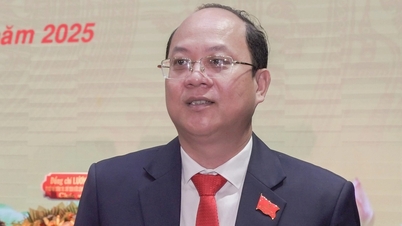

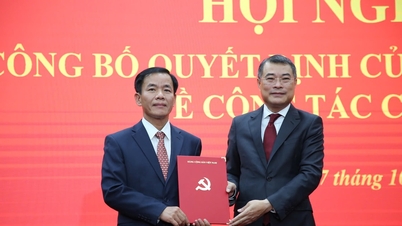

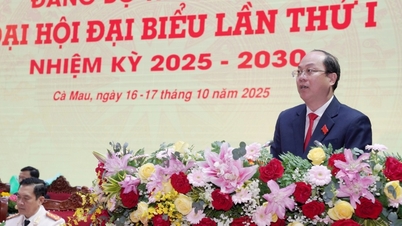


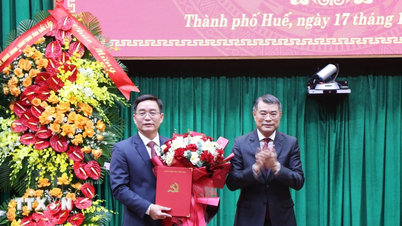

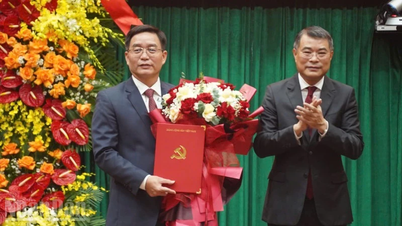




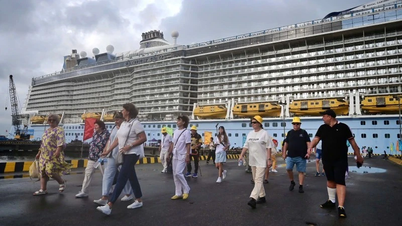
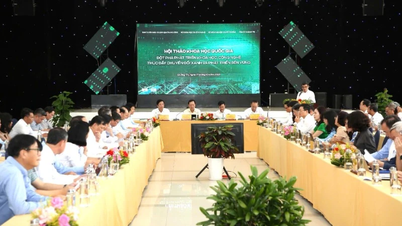
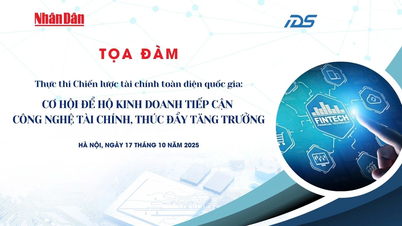
![[Video] Vietnam welcomes US assessment on anti-human trafficking](https://vphoto.vietnam.vn/thumb/402x226/vietnam/resource/IMAGE/2025/10/17/1760661344782_1760625394085-jpg.webp)
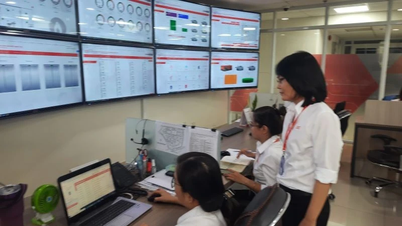
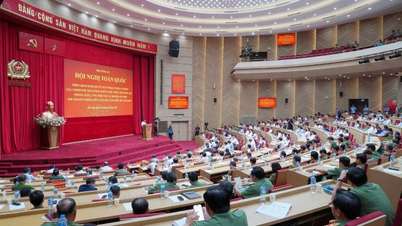
![[Photo] General Secretary To Lam attends the 18th Hanoi Party Congress, term 2025-2030](https://vphoto.vietnam.vn/thumb/1200x675/vietnam/resource/IMAGE/2025/10/16/1760581023342_cover-0367-jpg.webp)
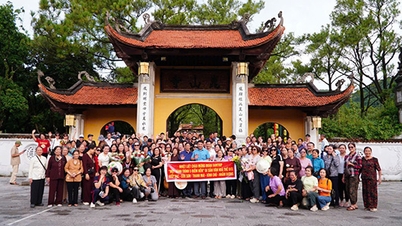











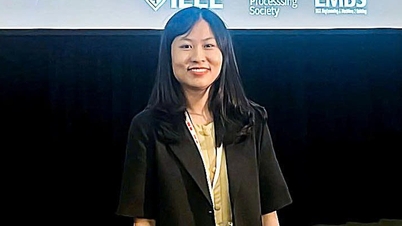








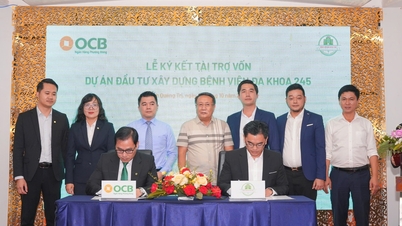


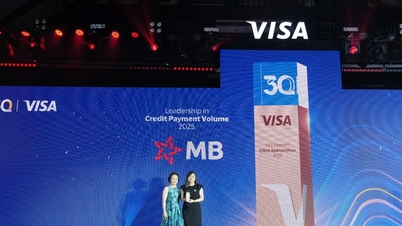
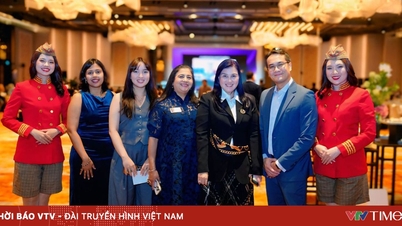

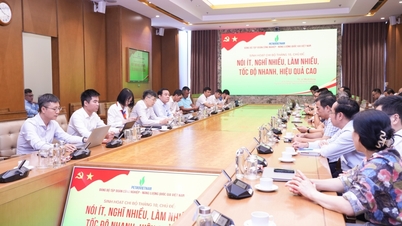






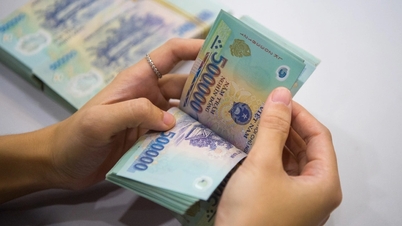
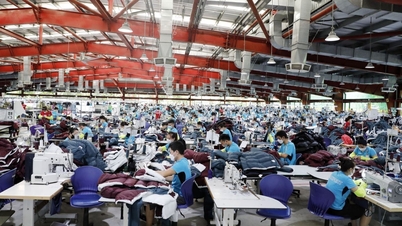


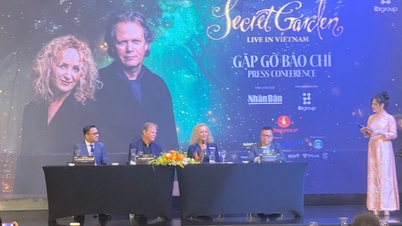
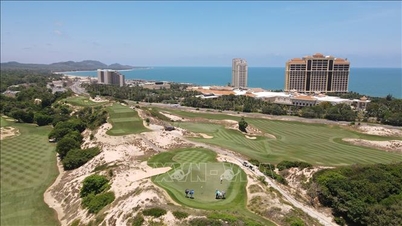
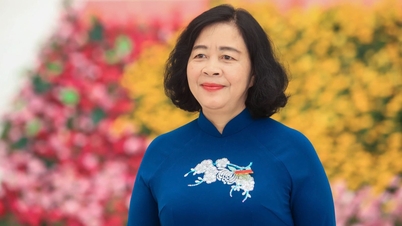





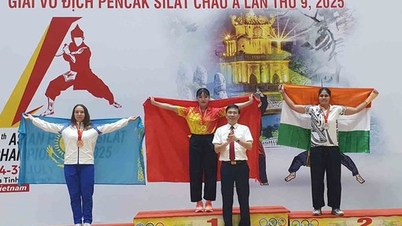
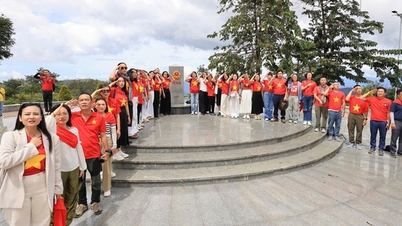

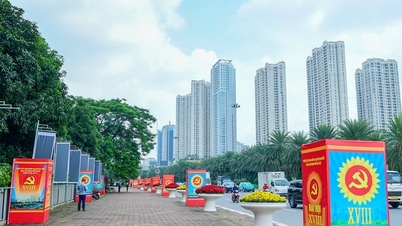

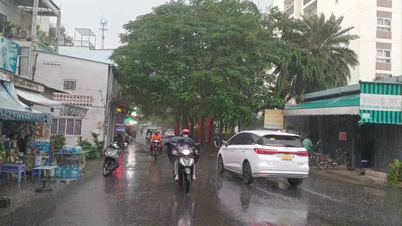




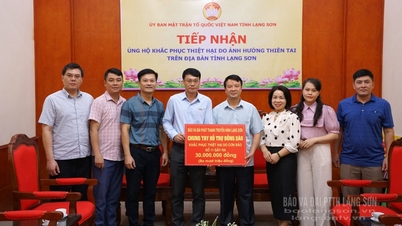

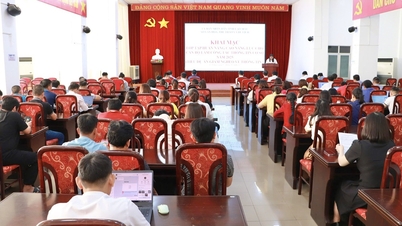
















Comment (0)